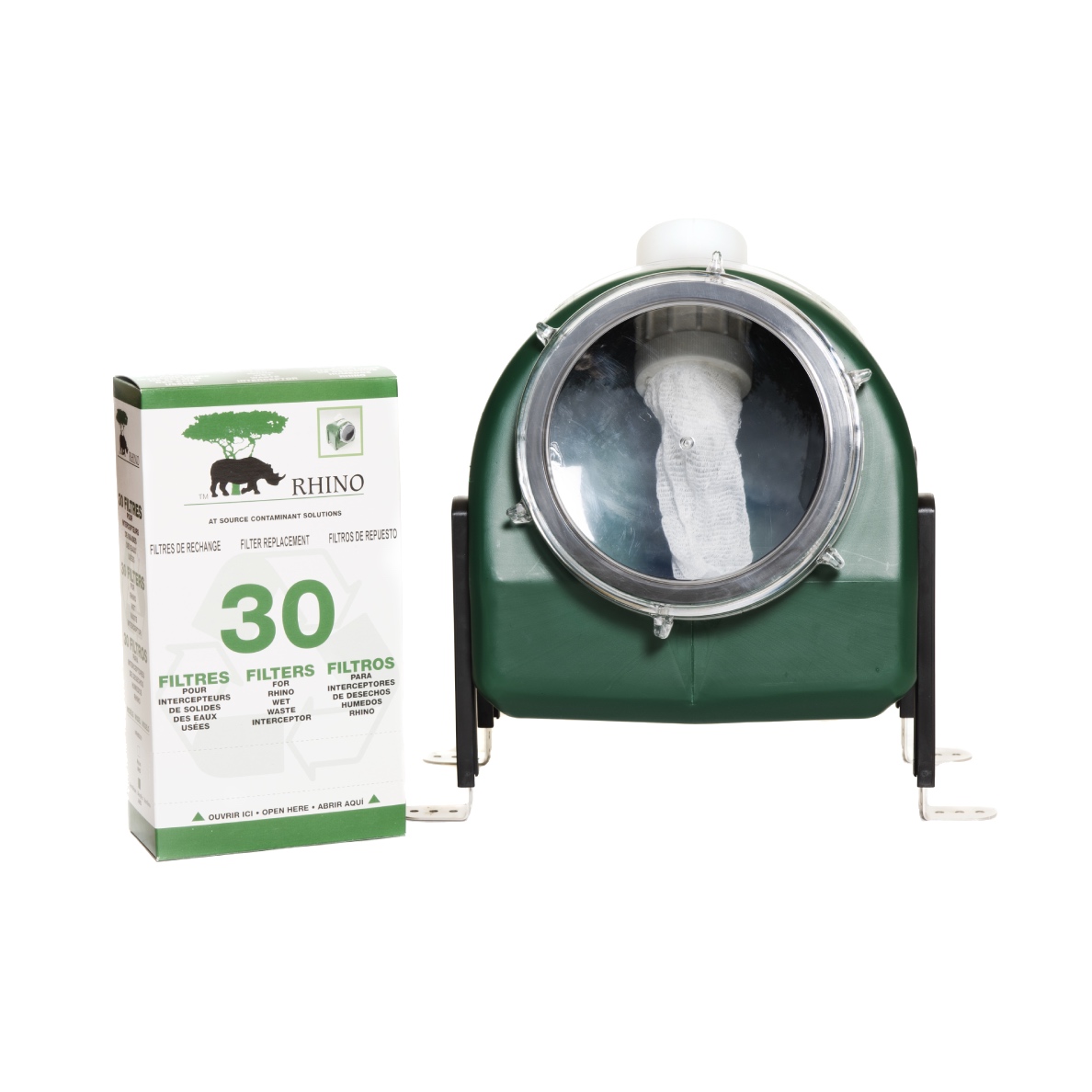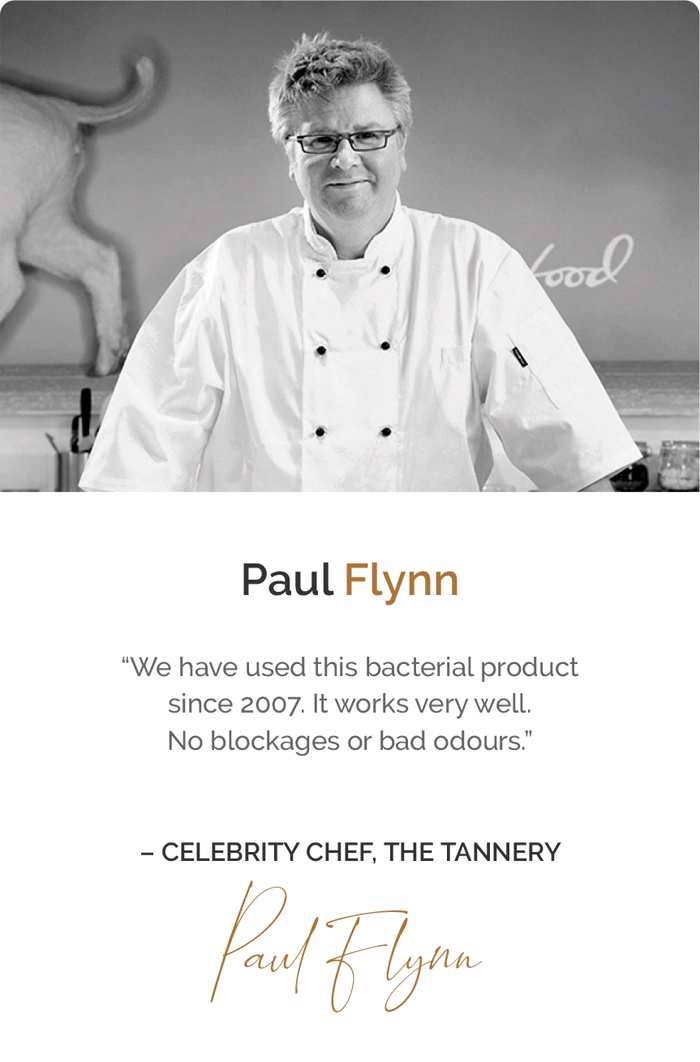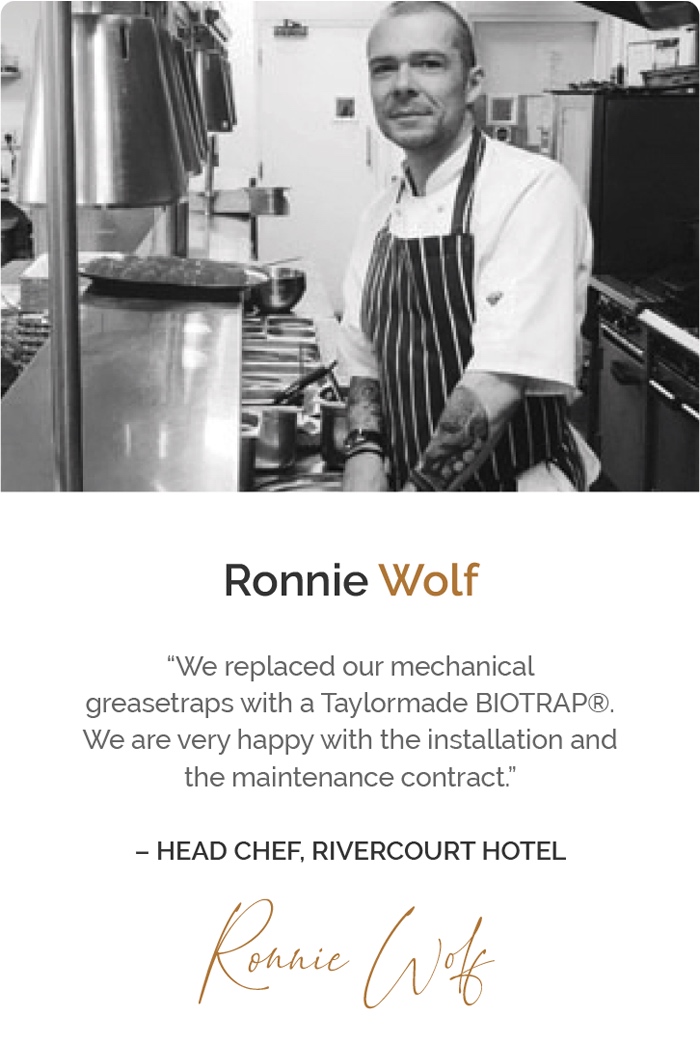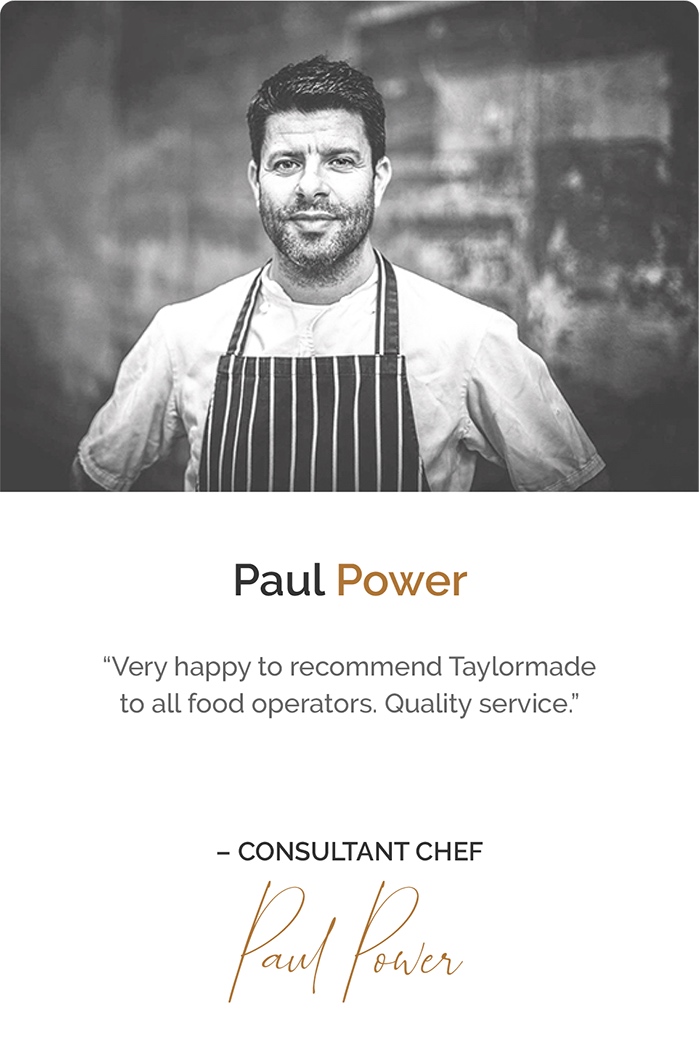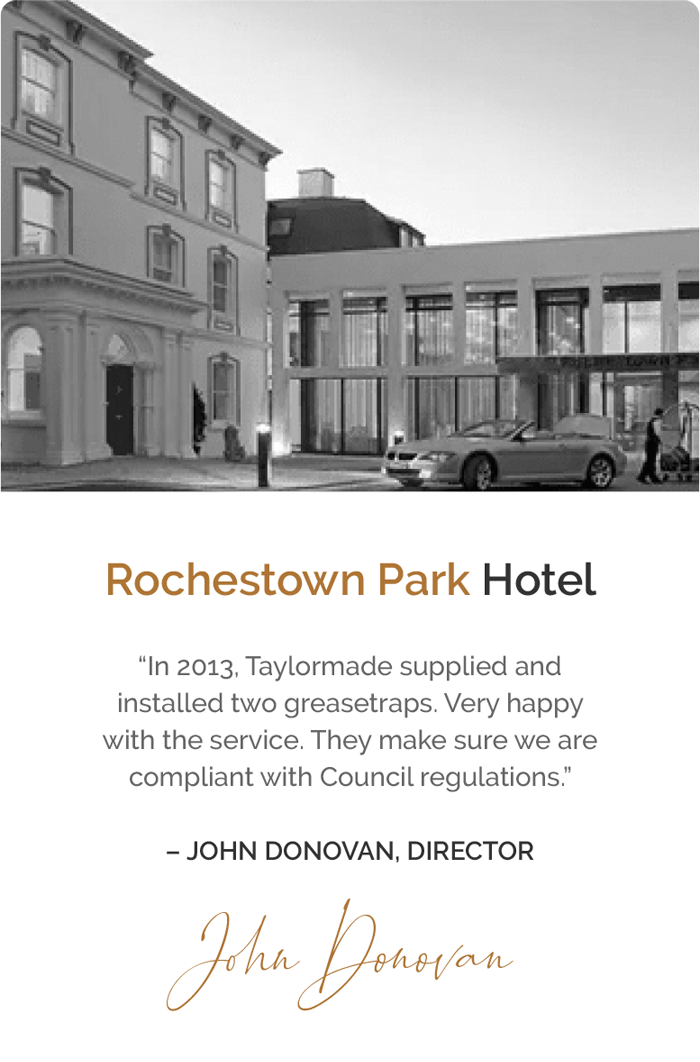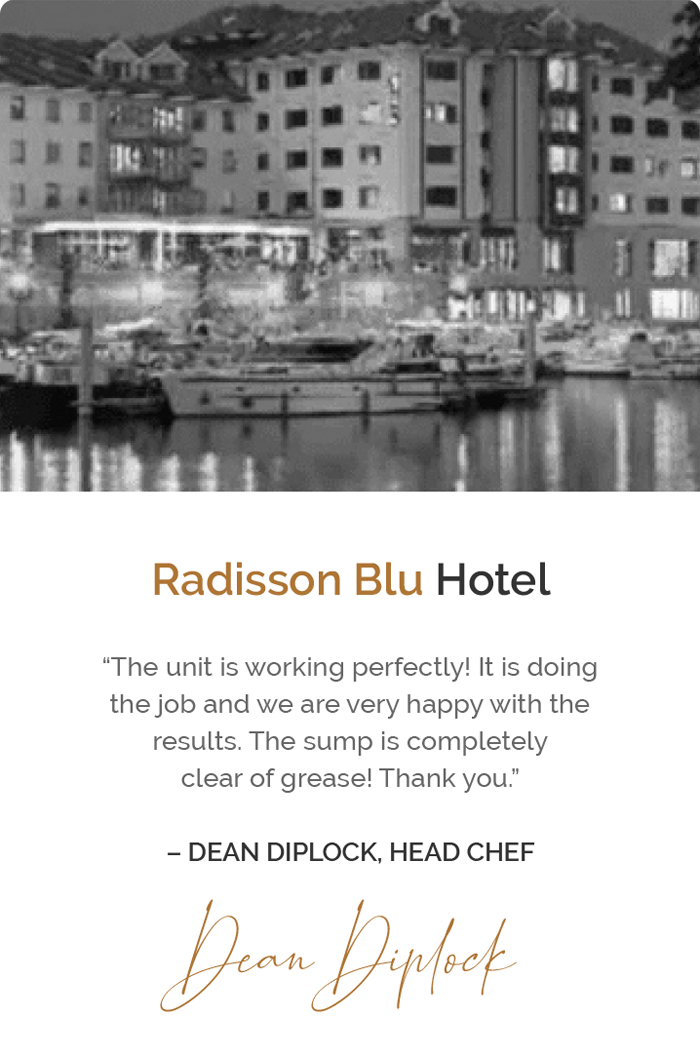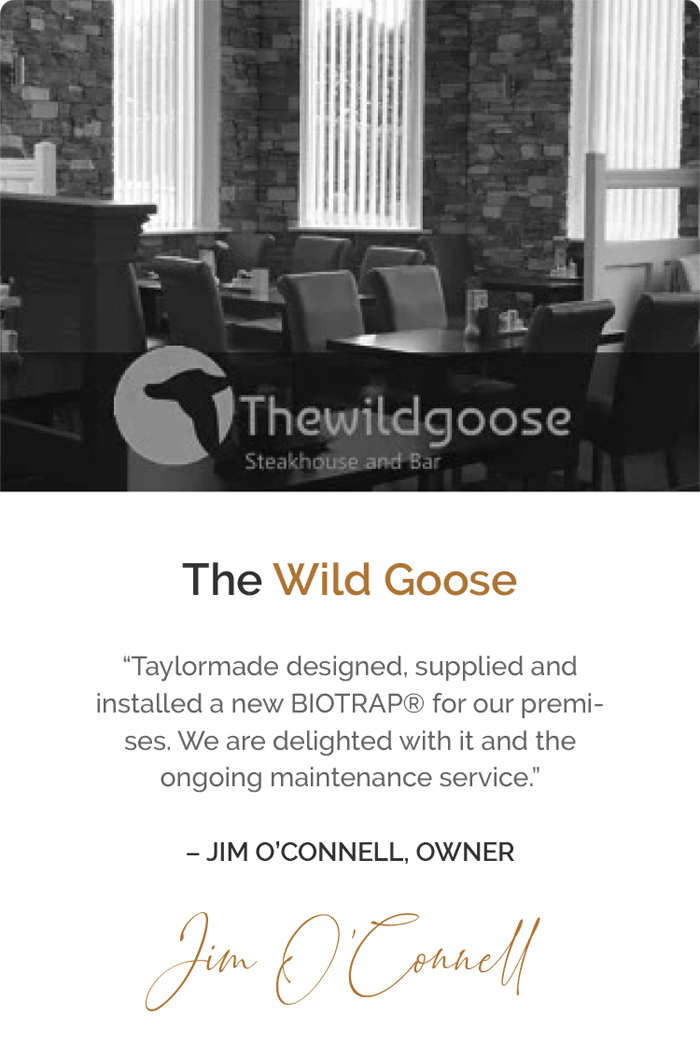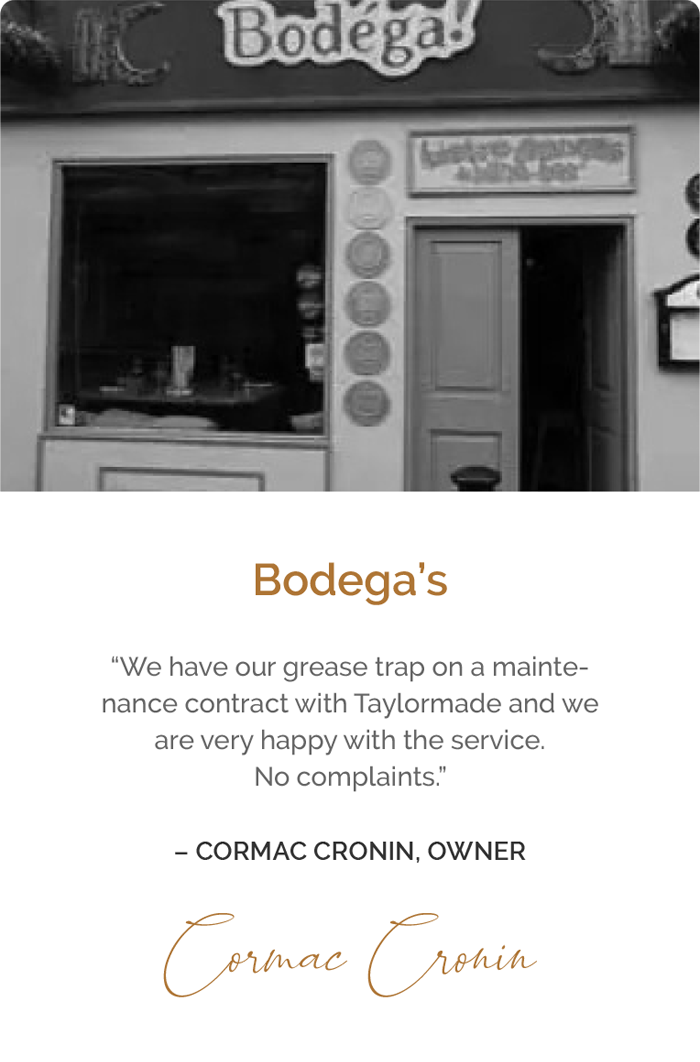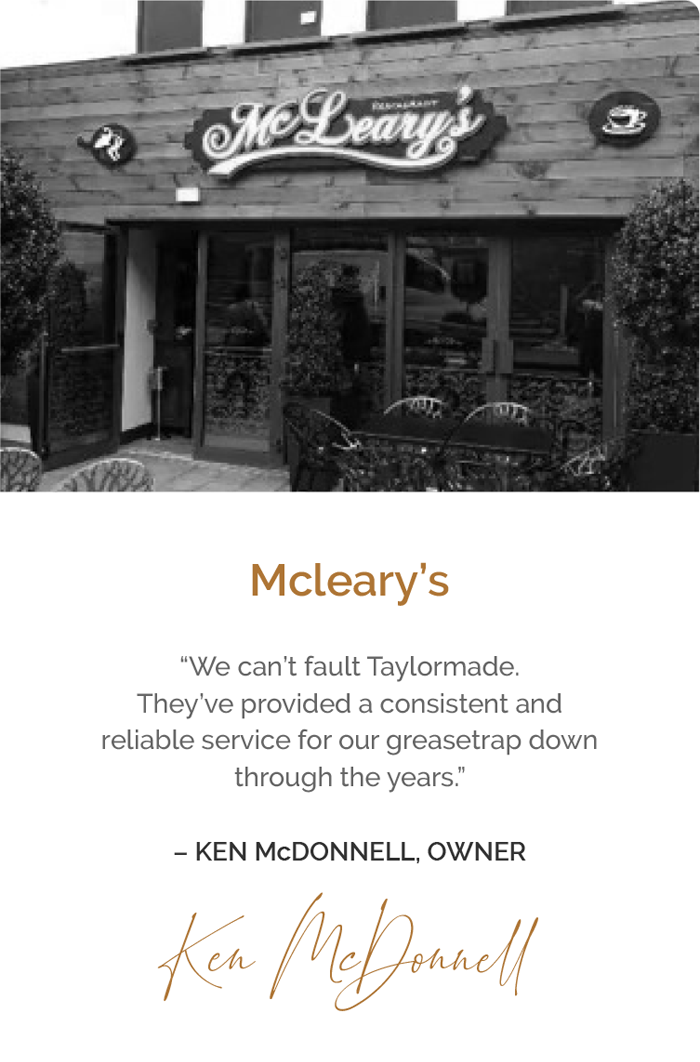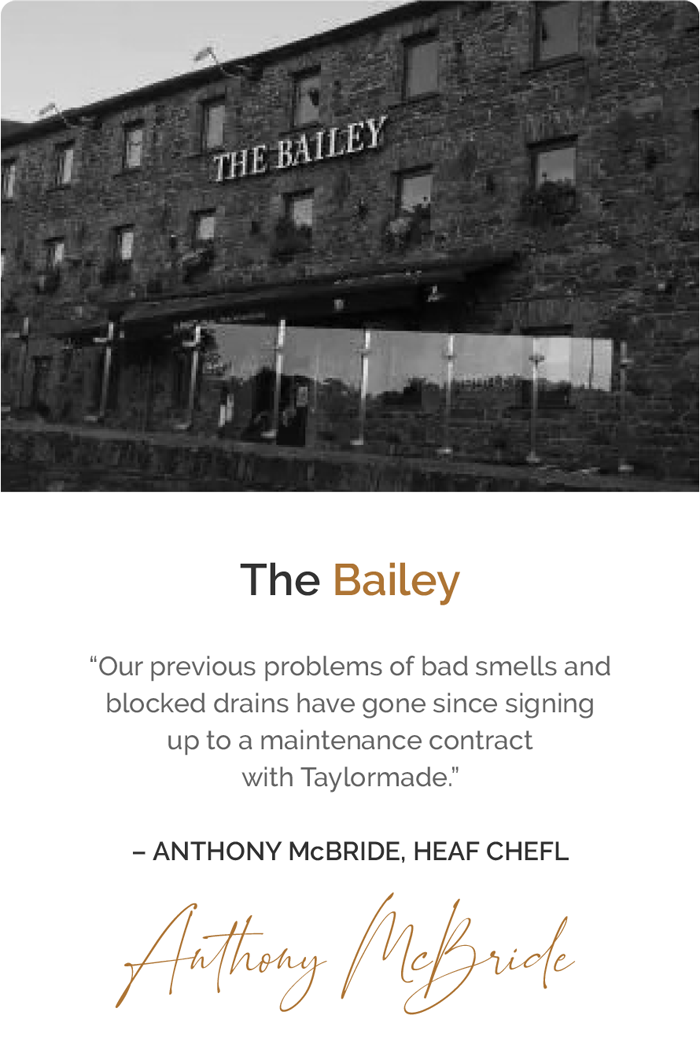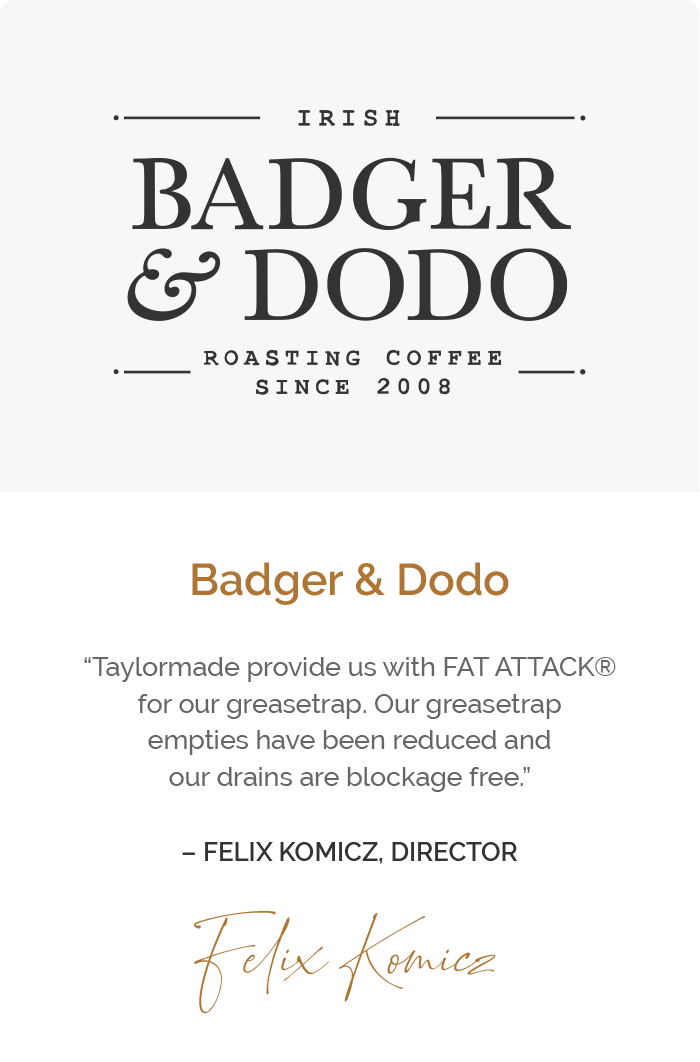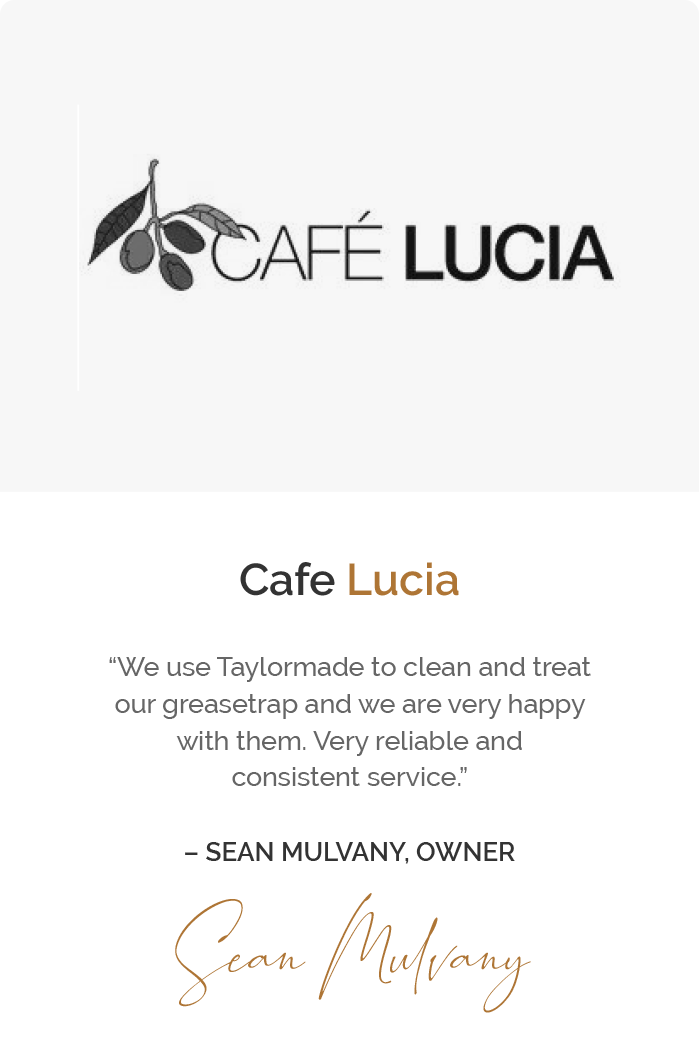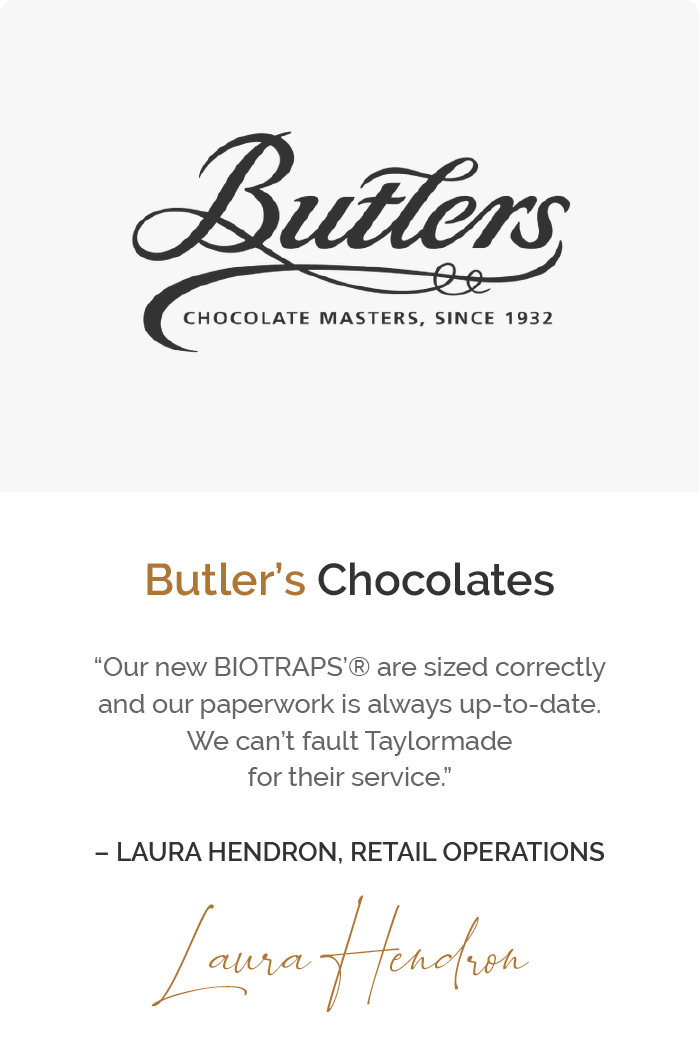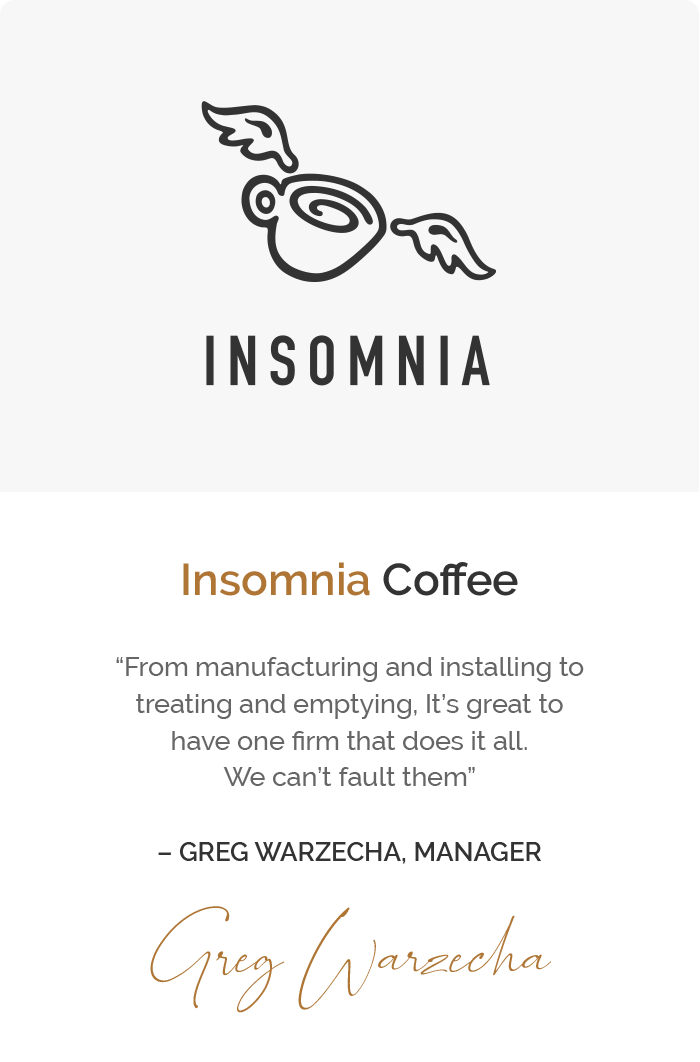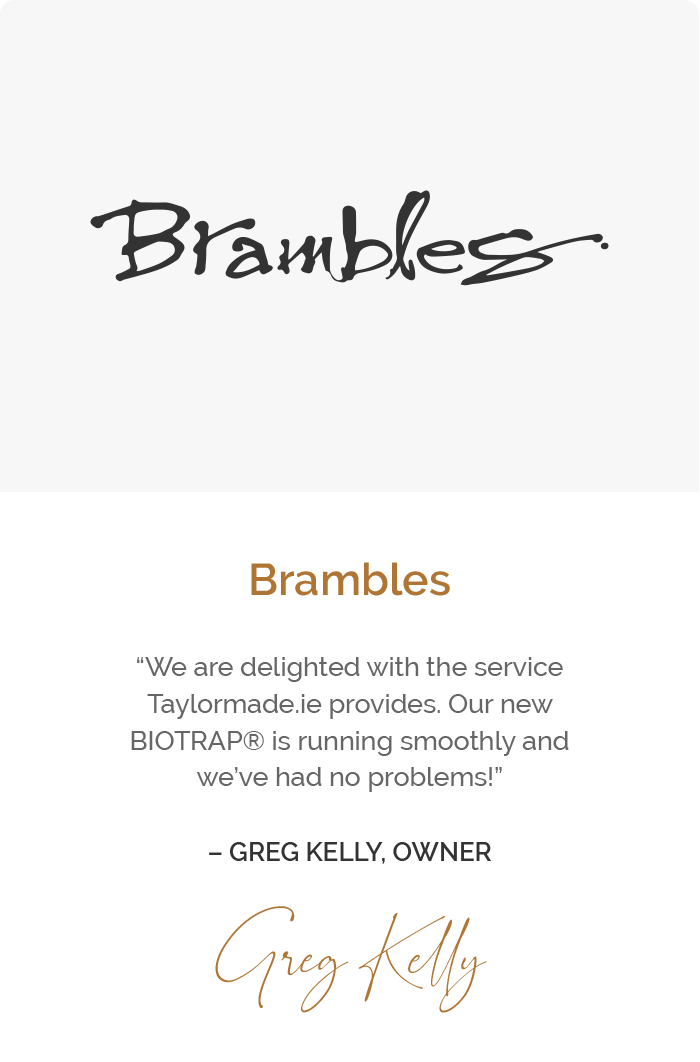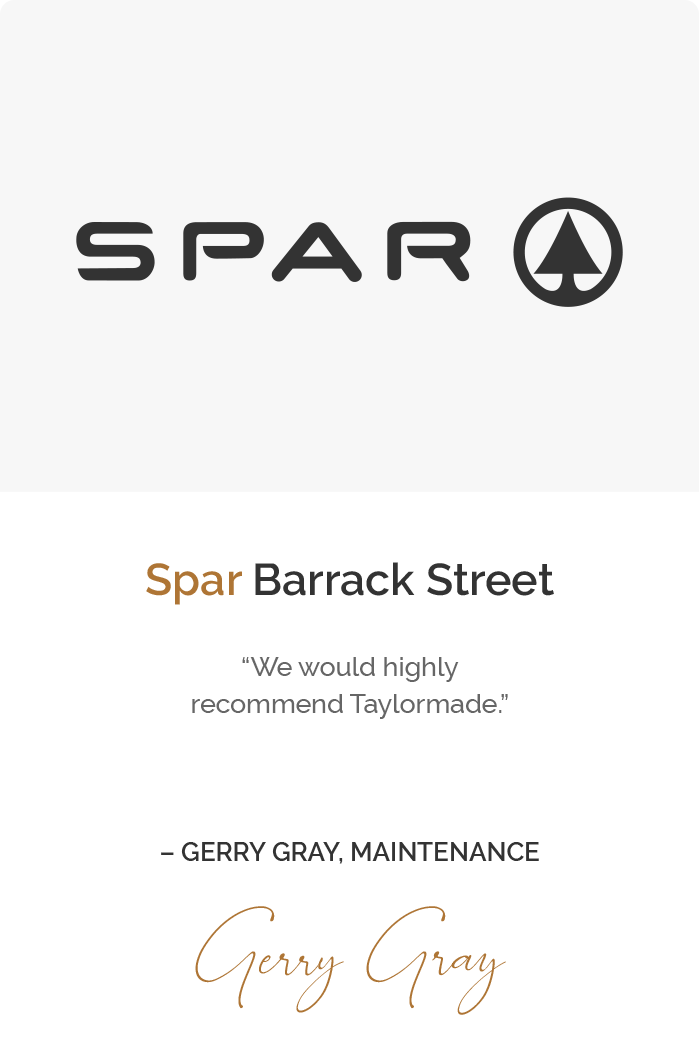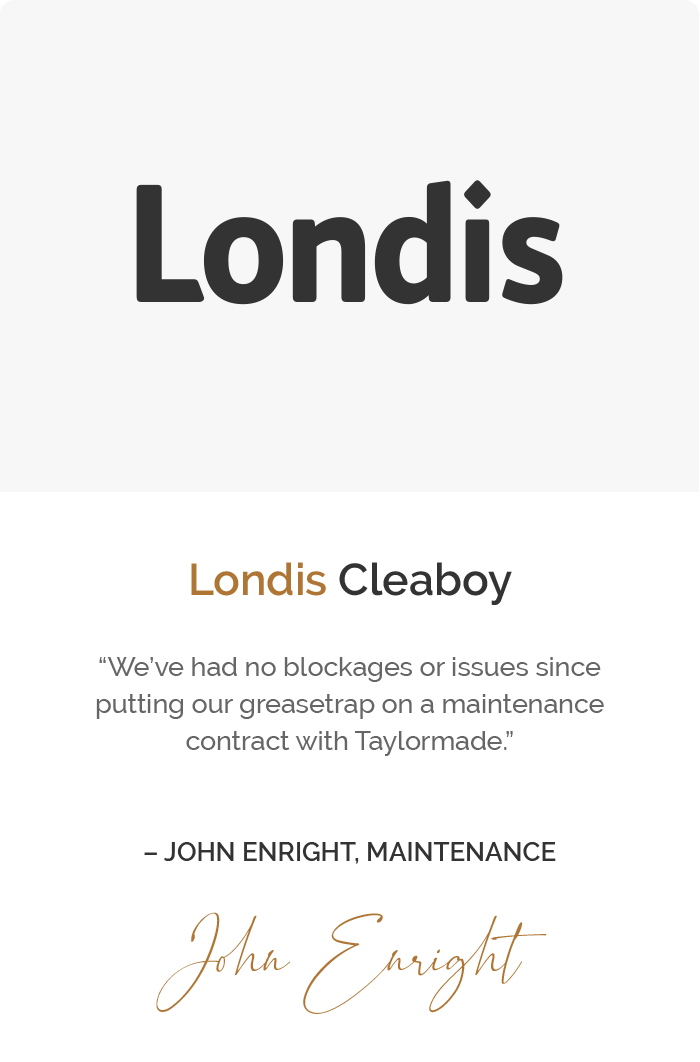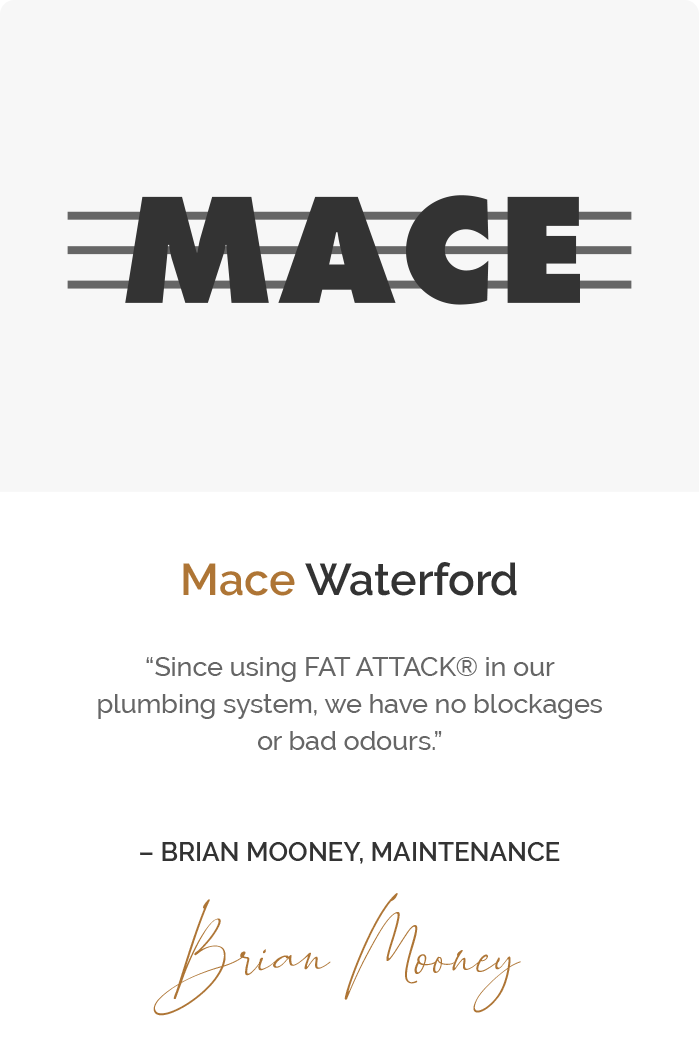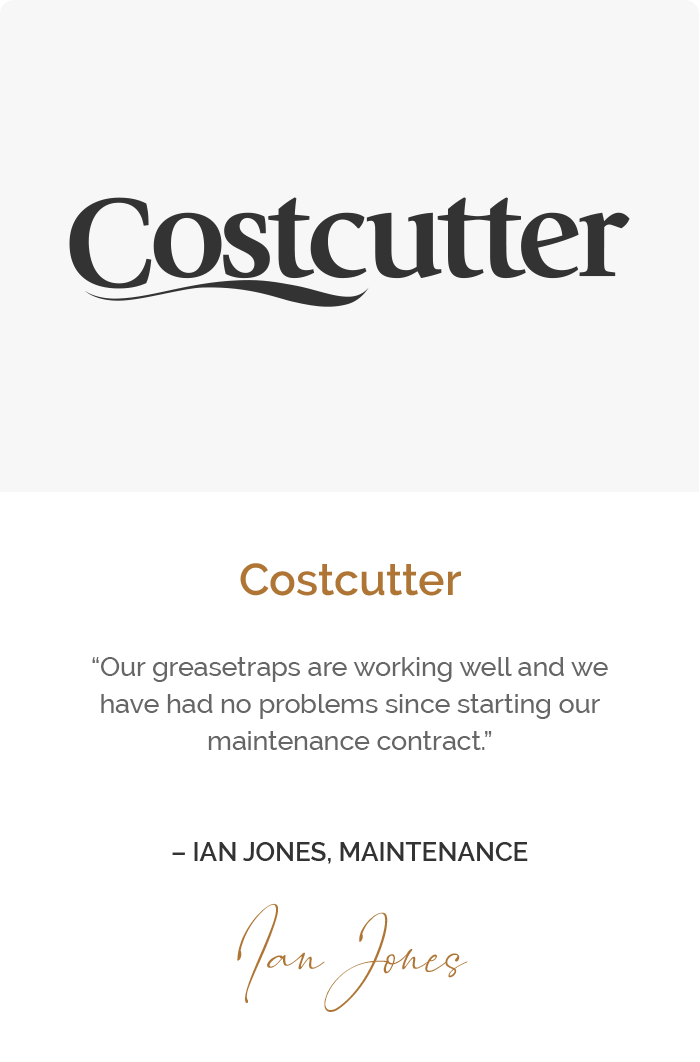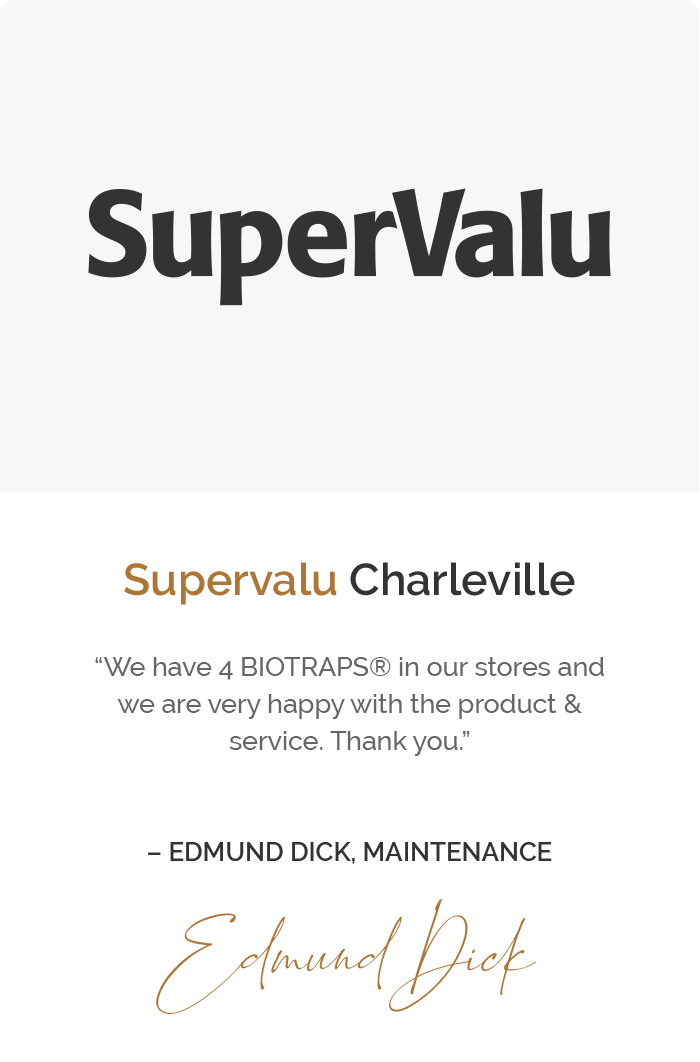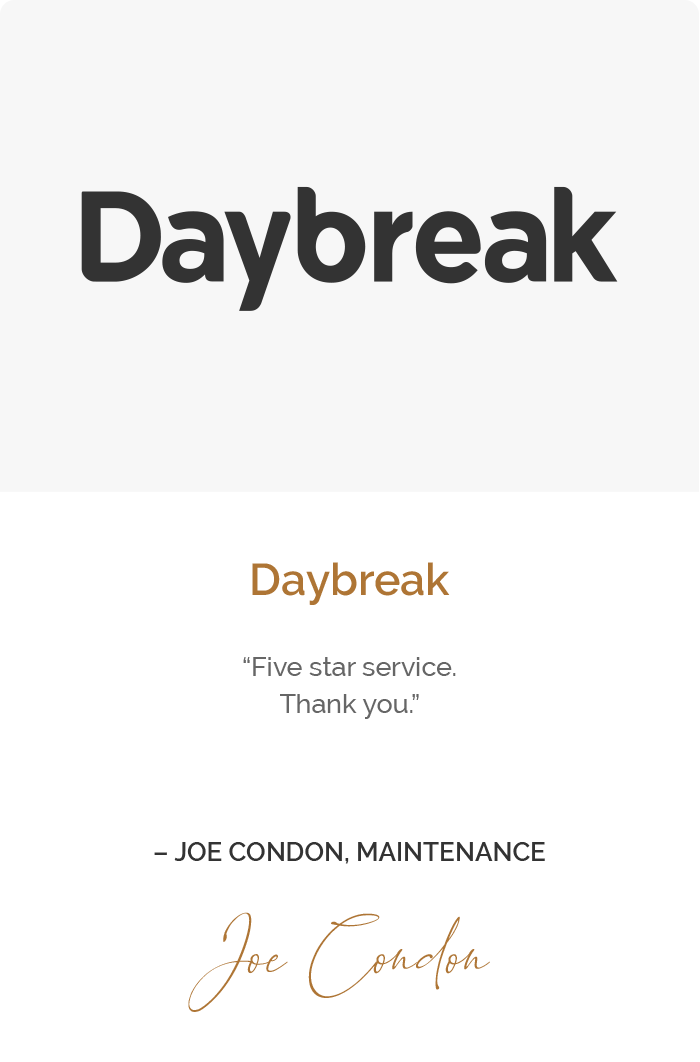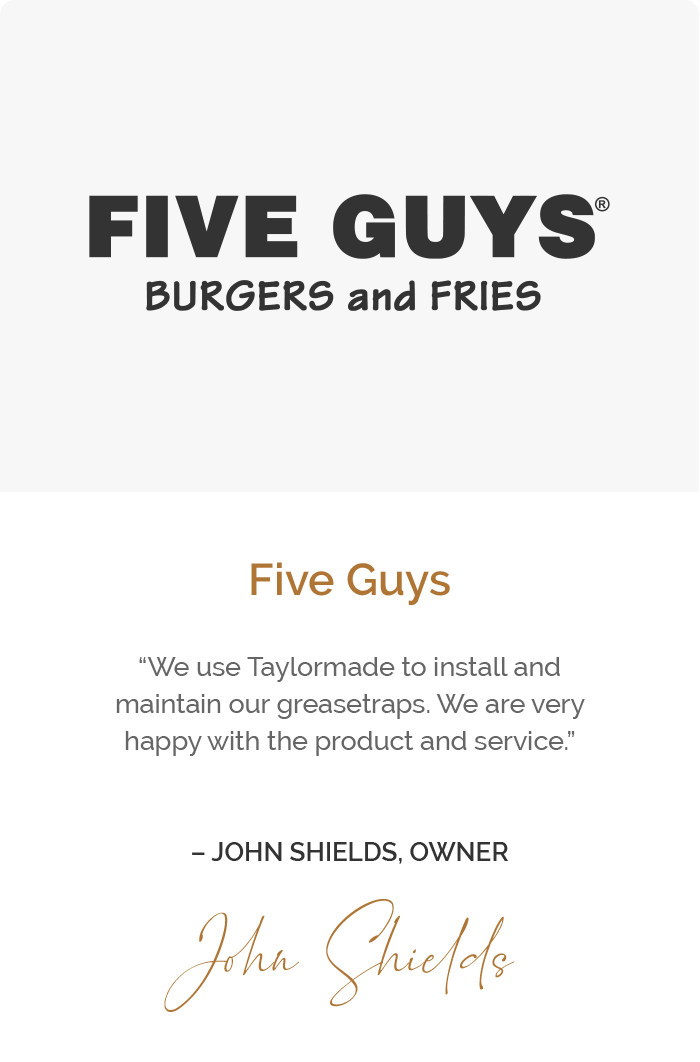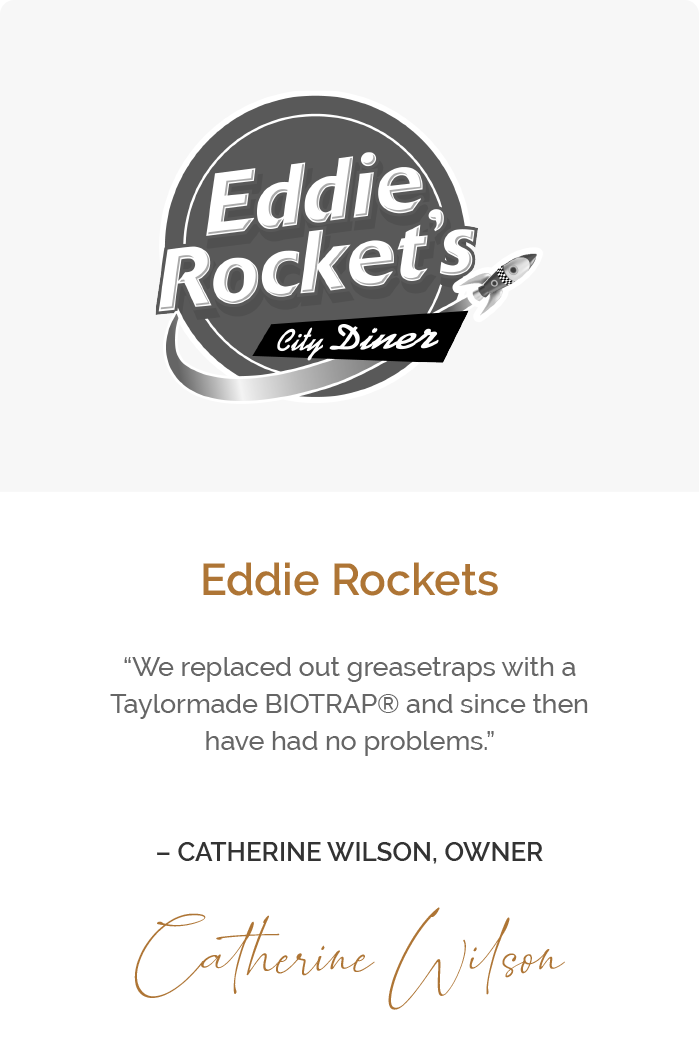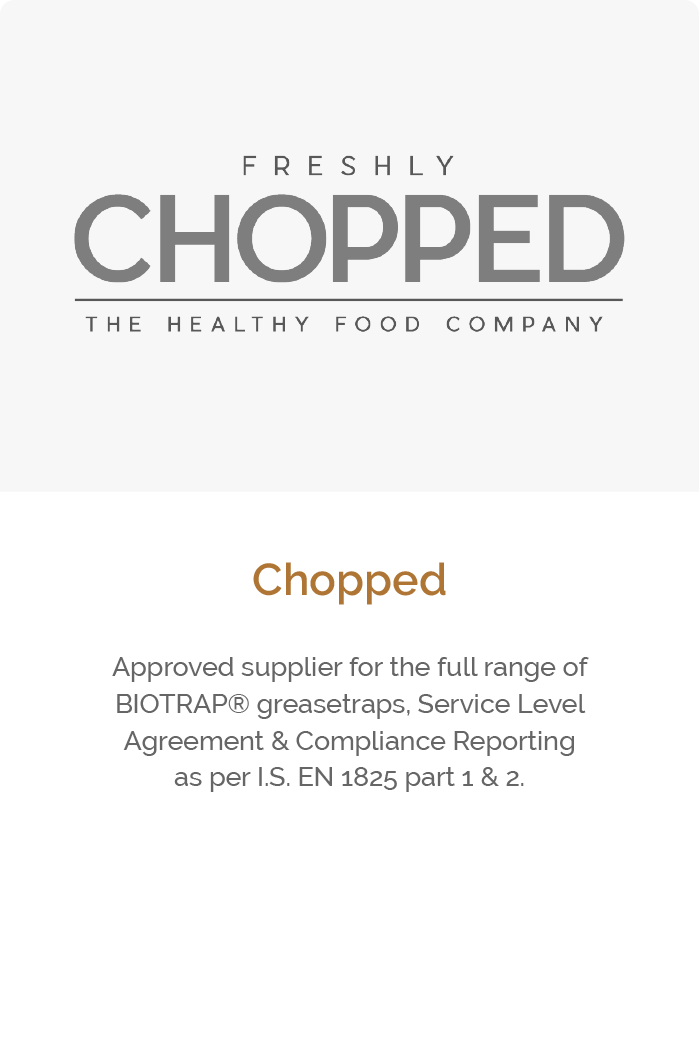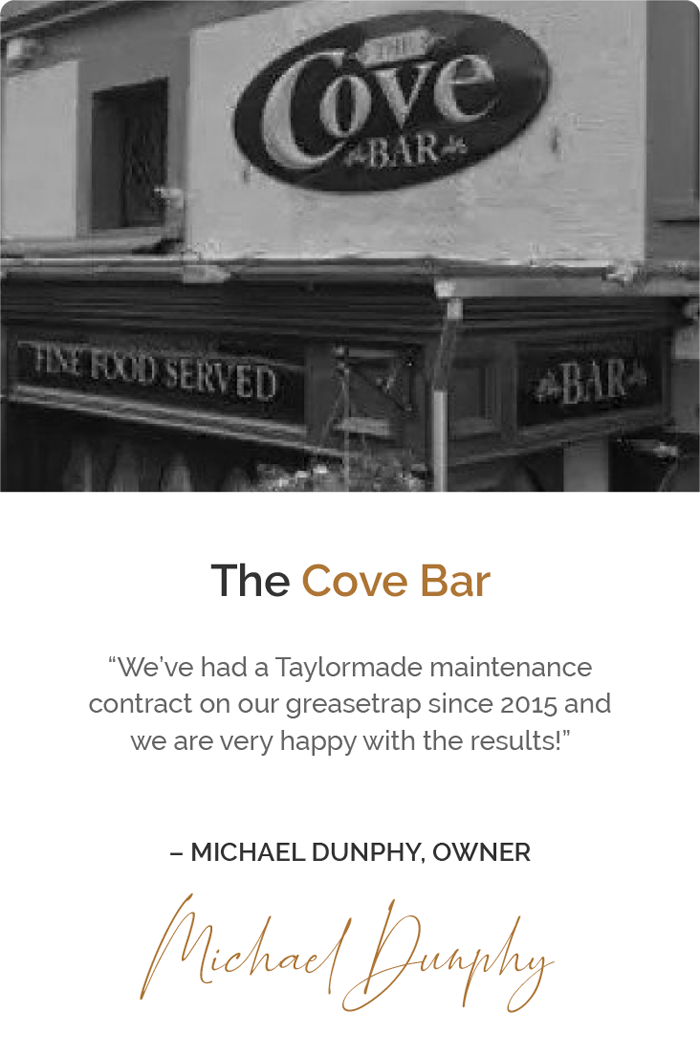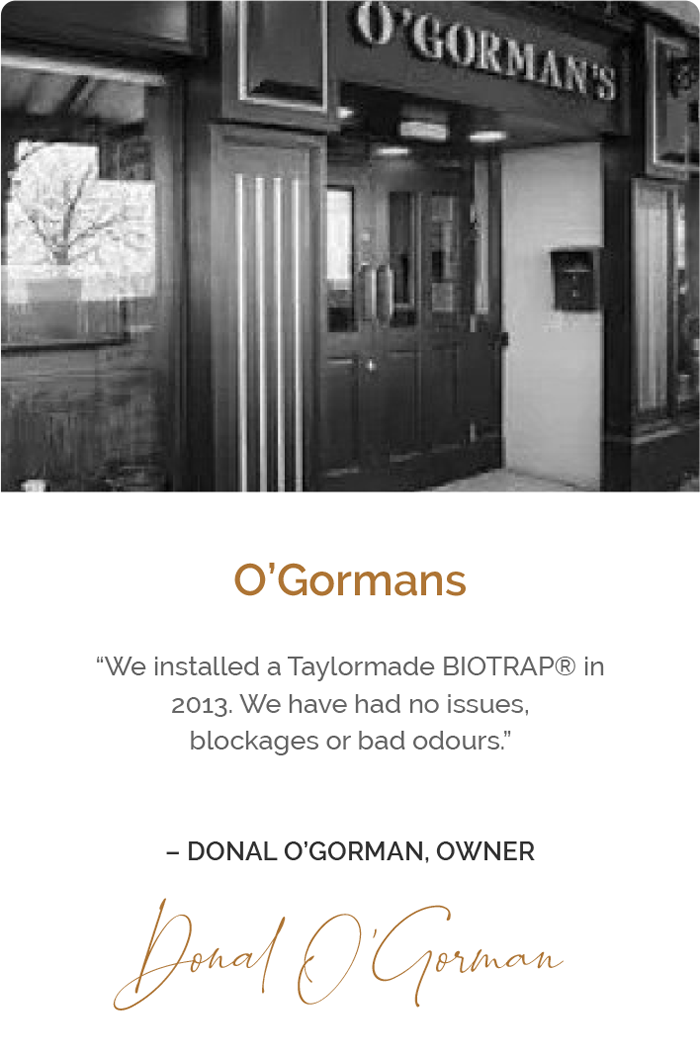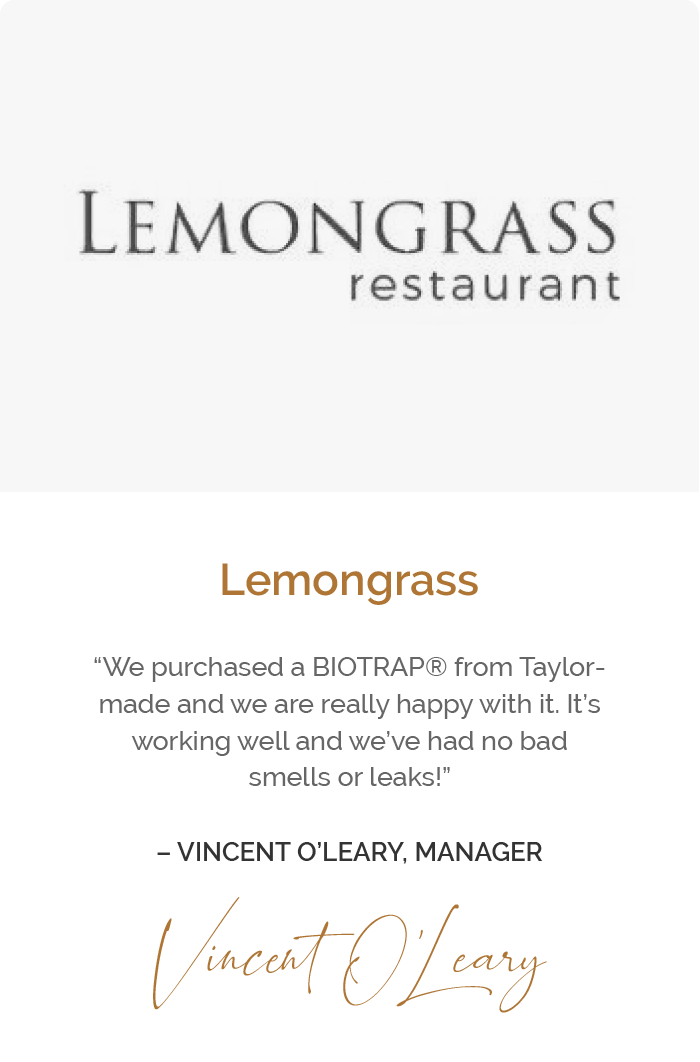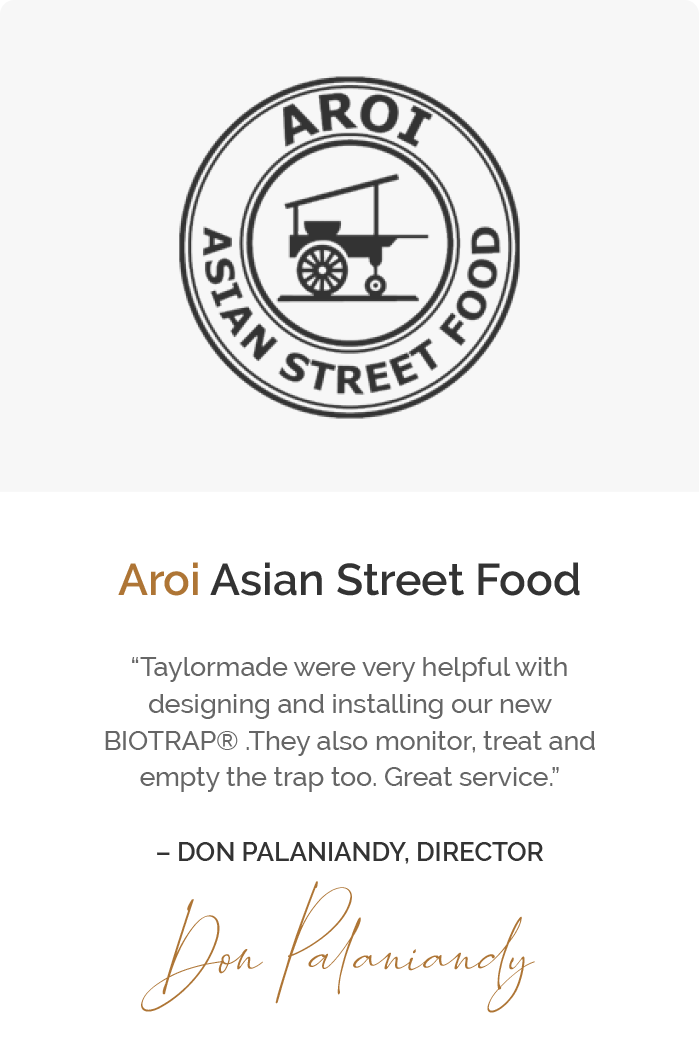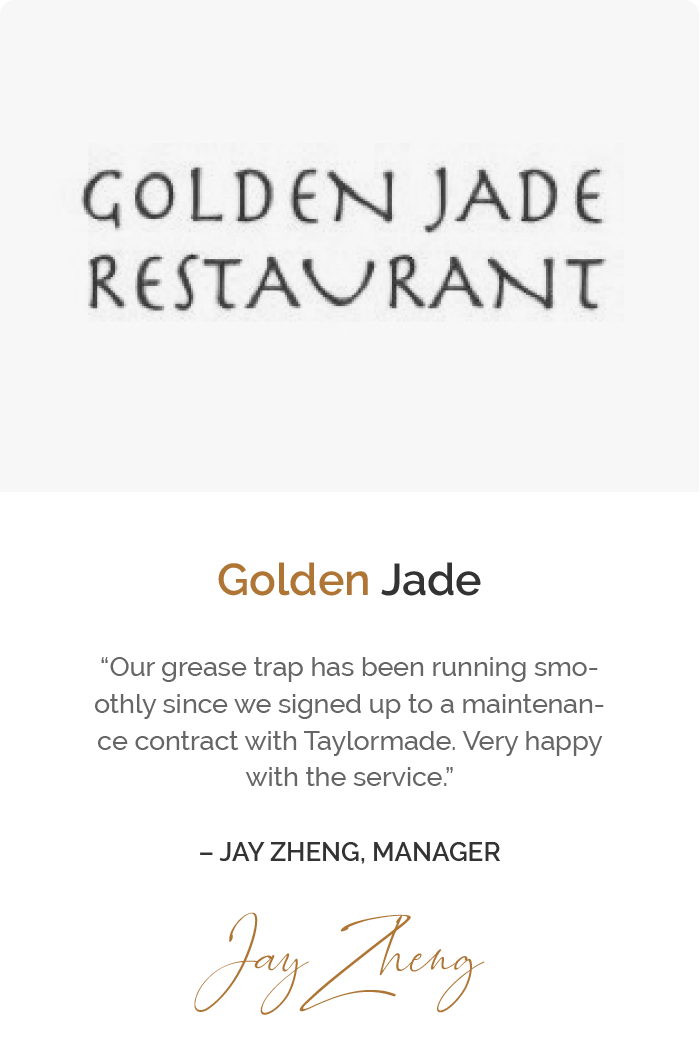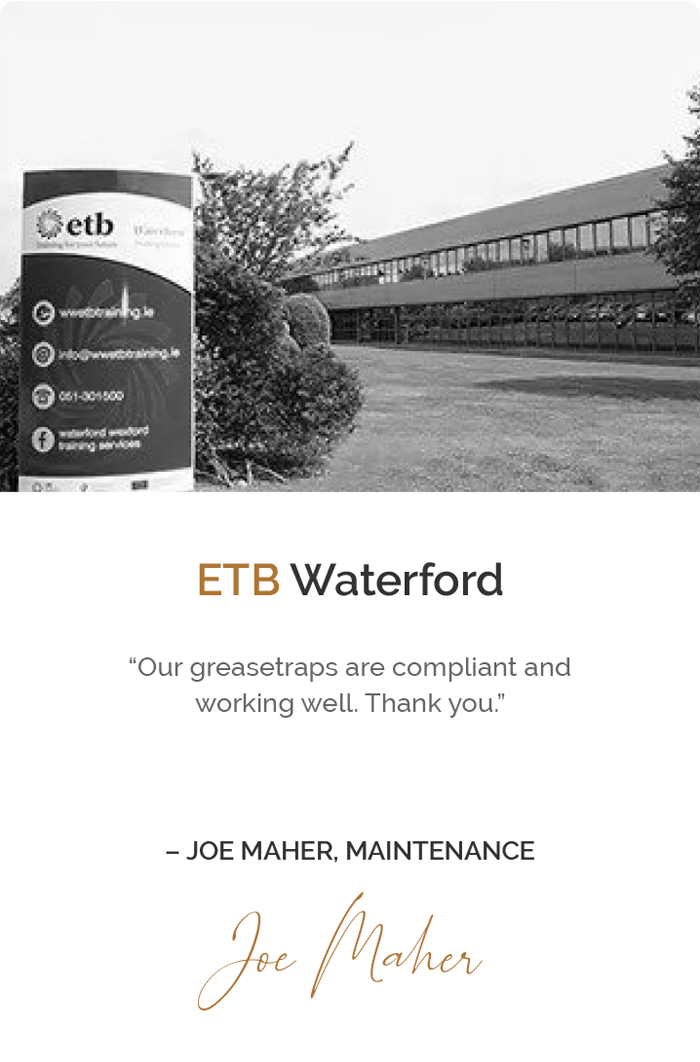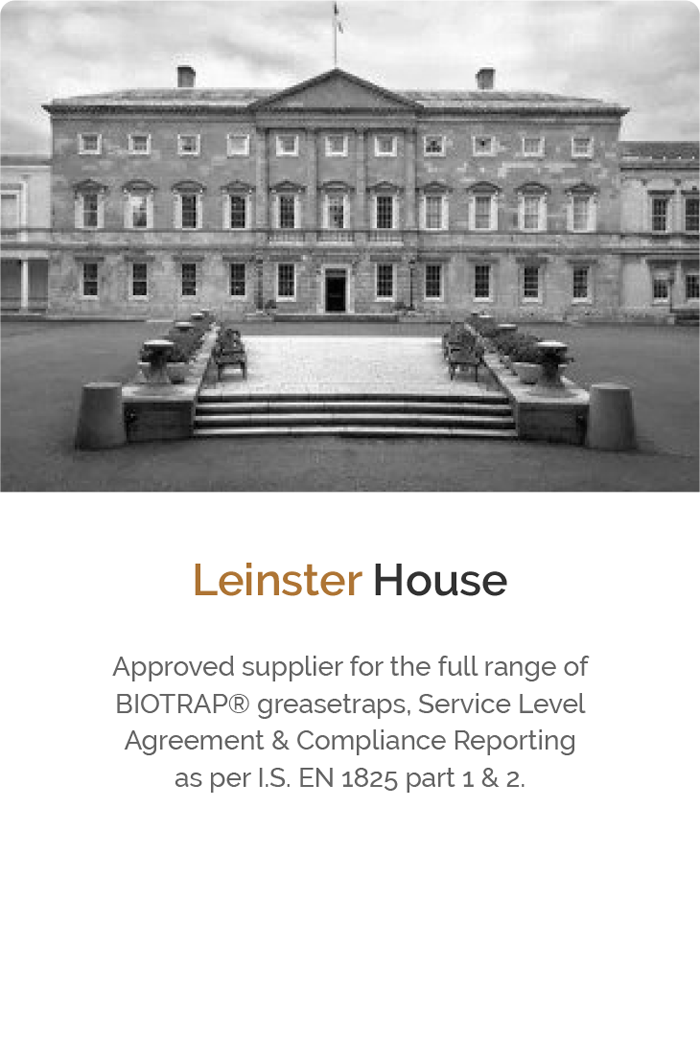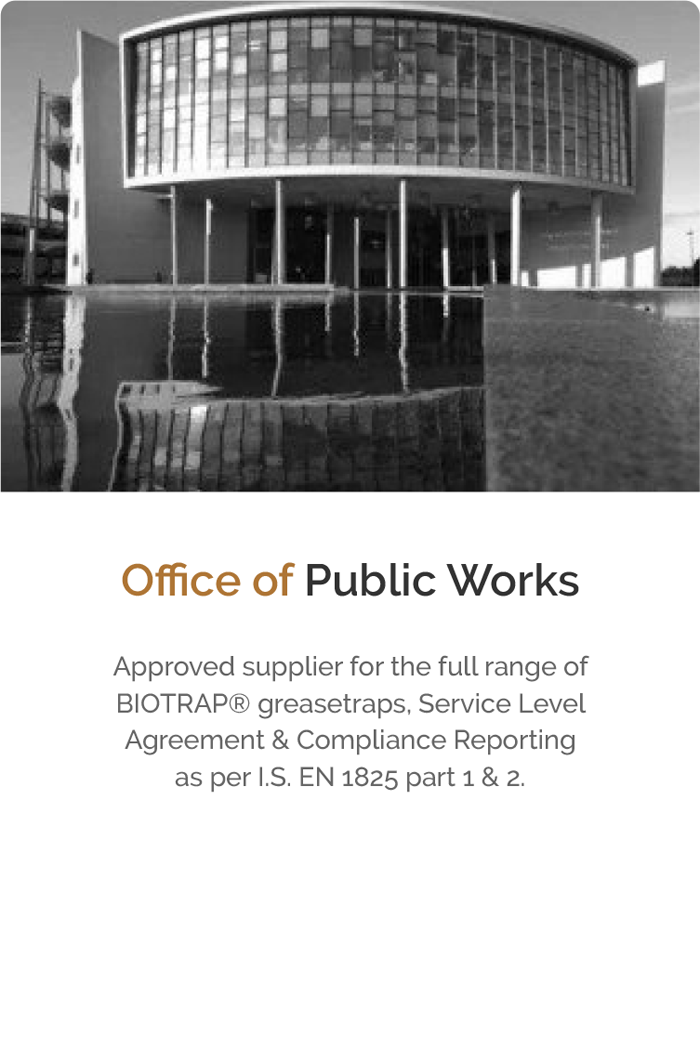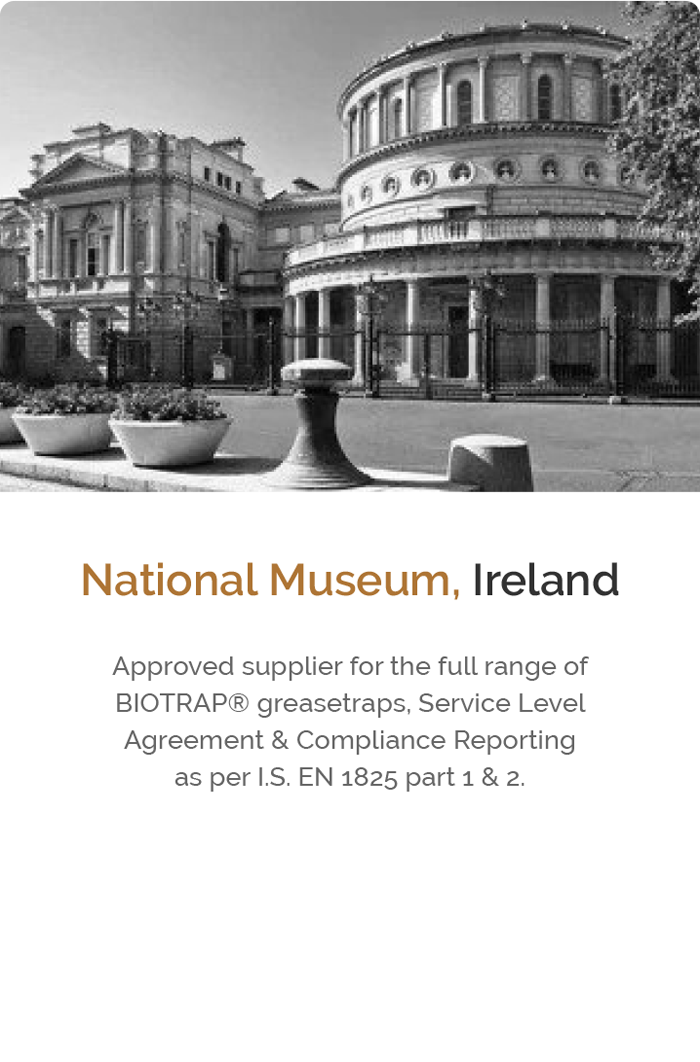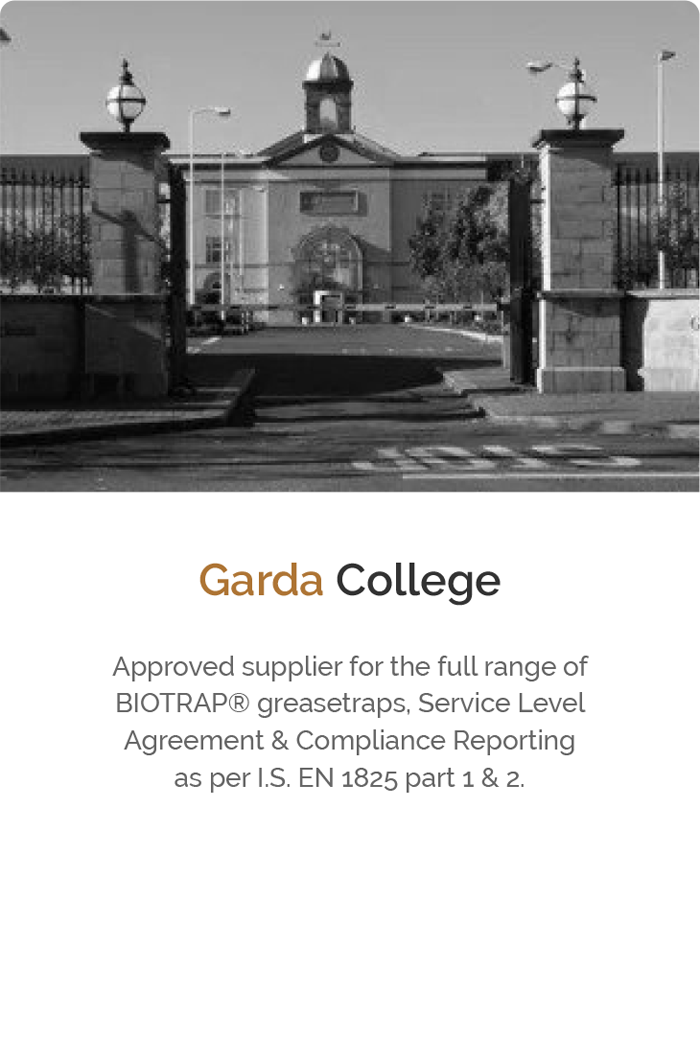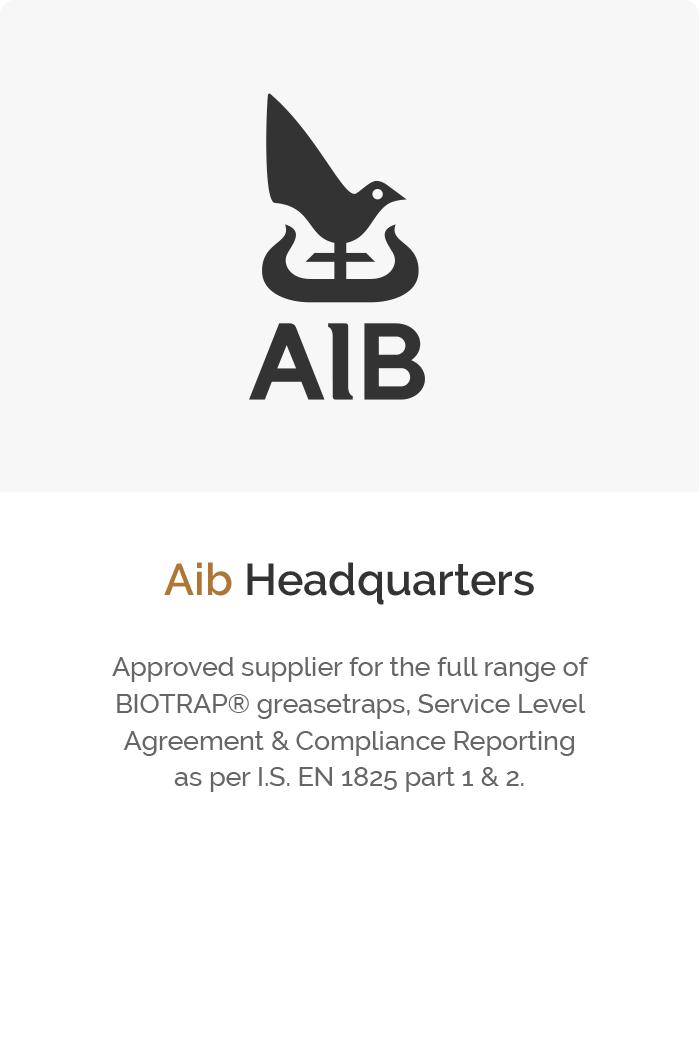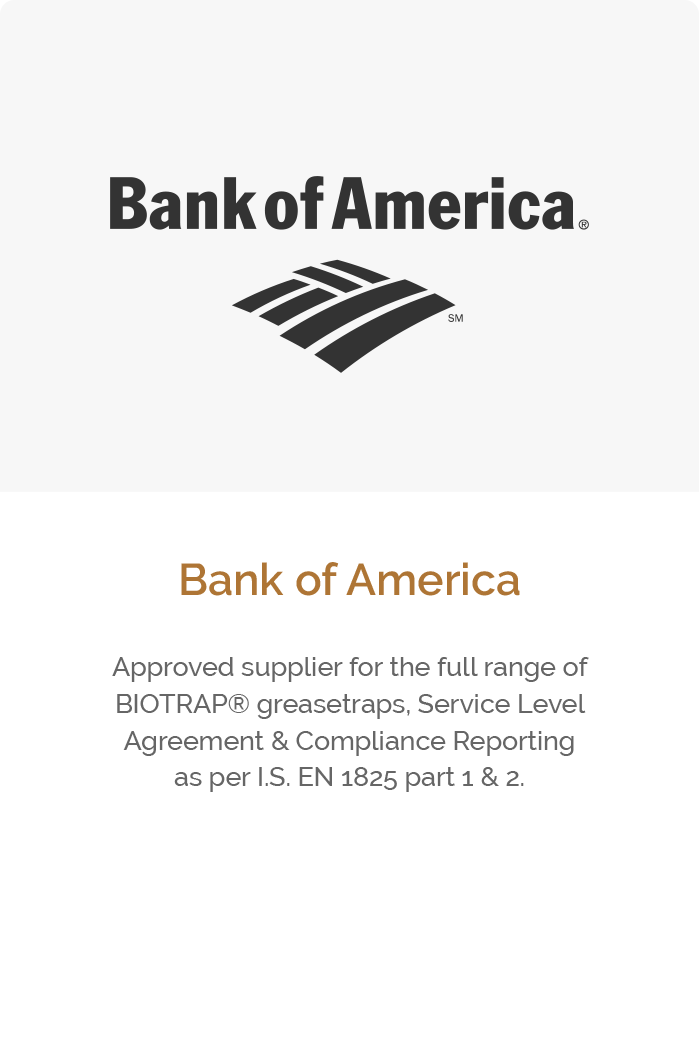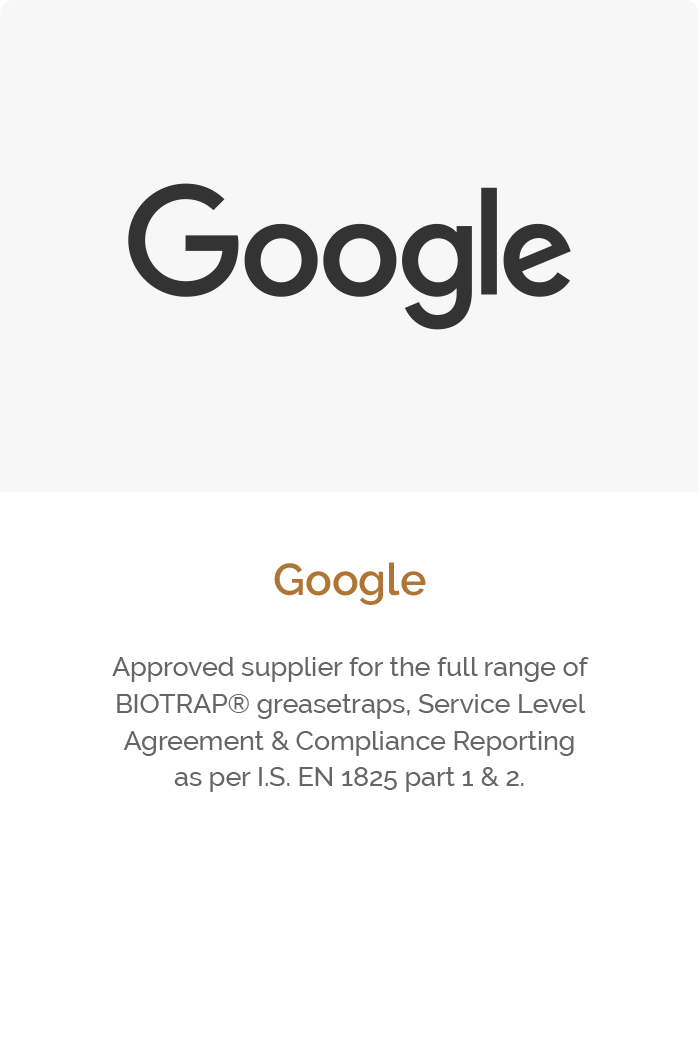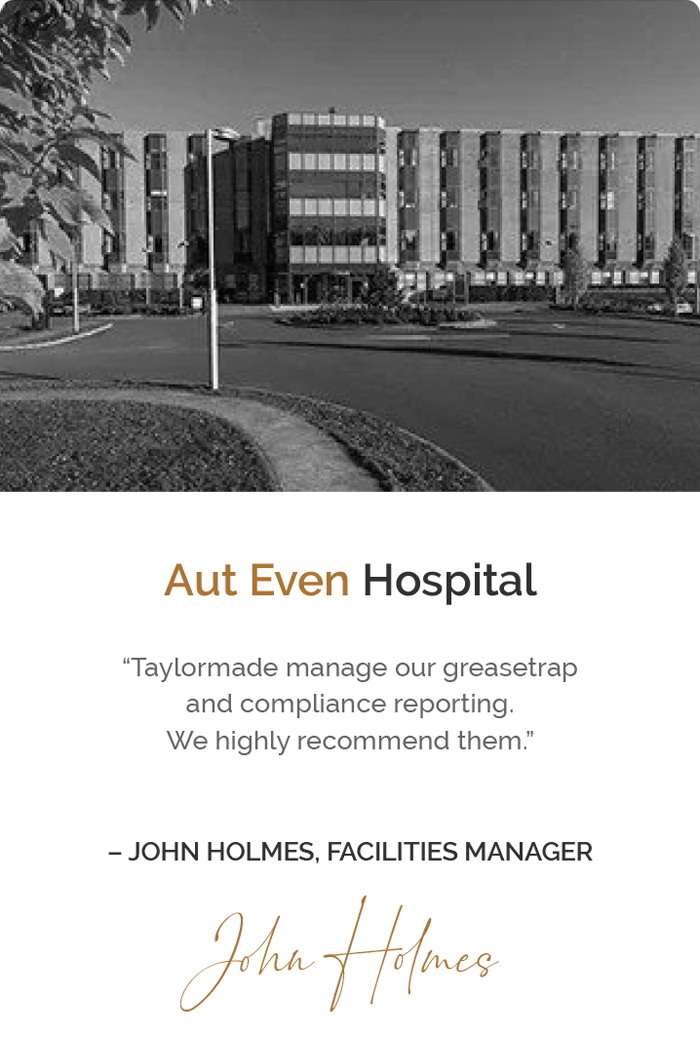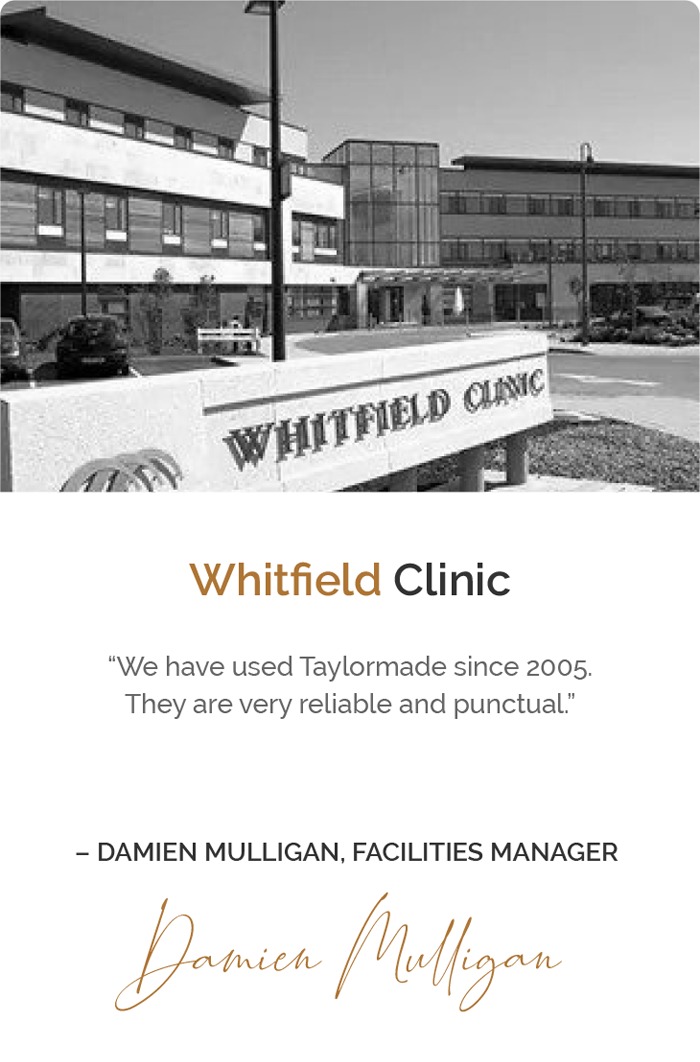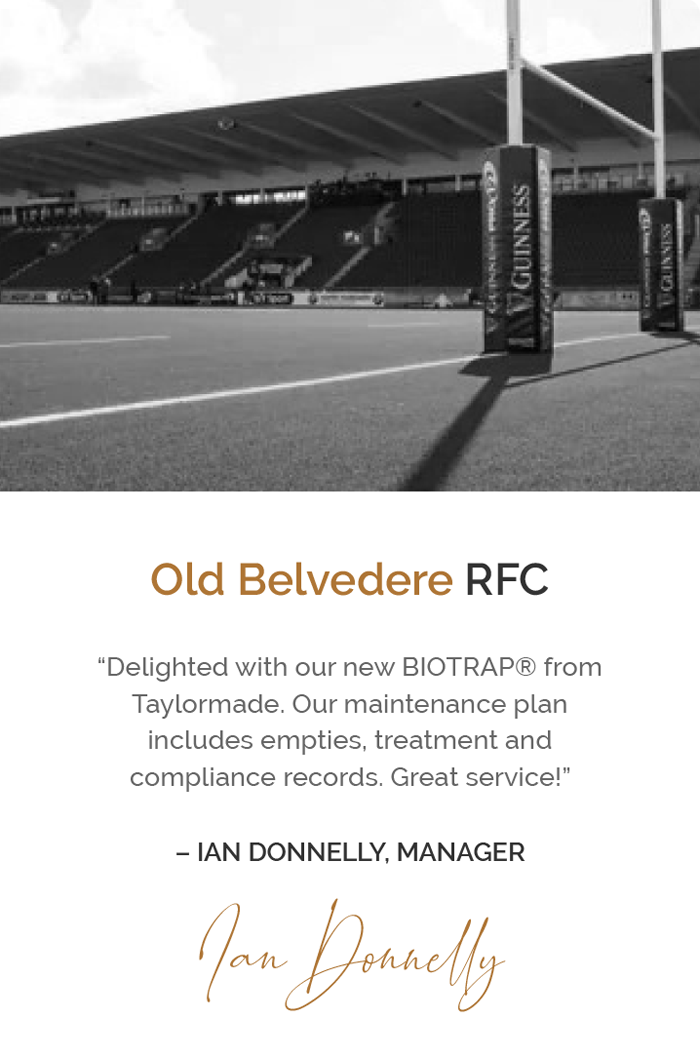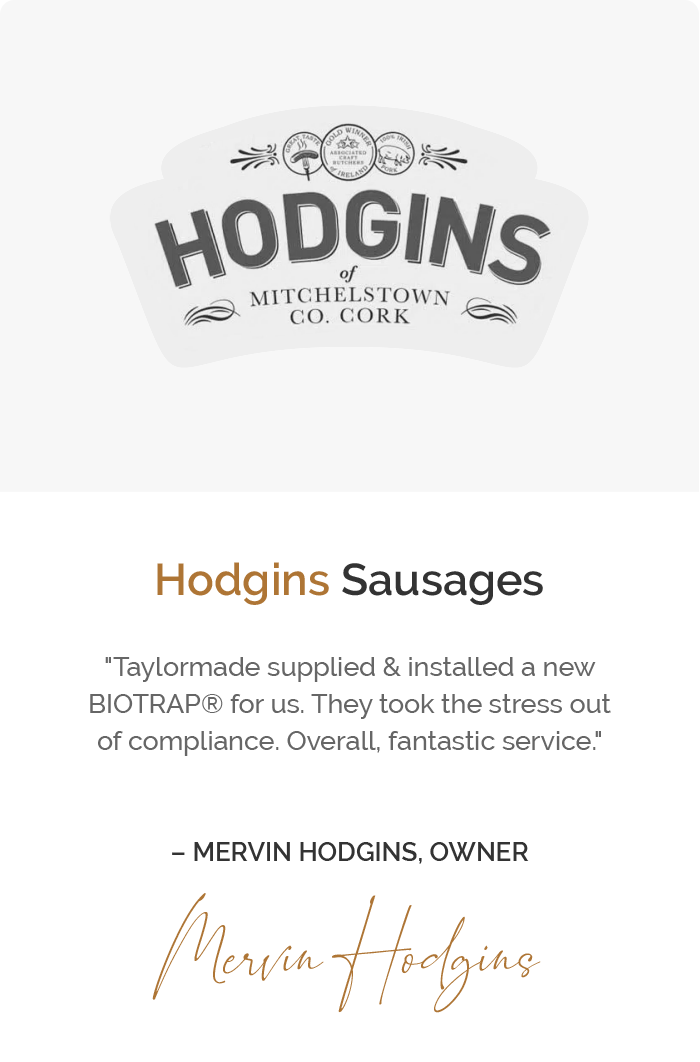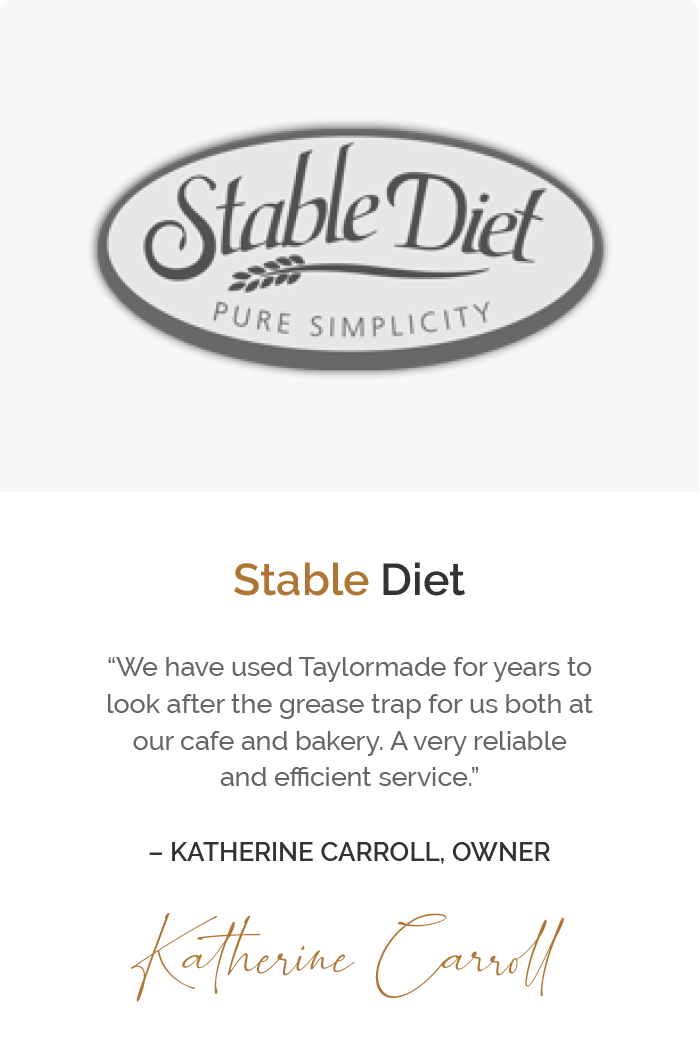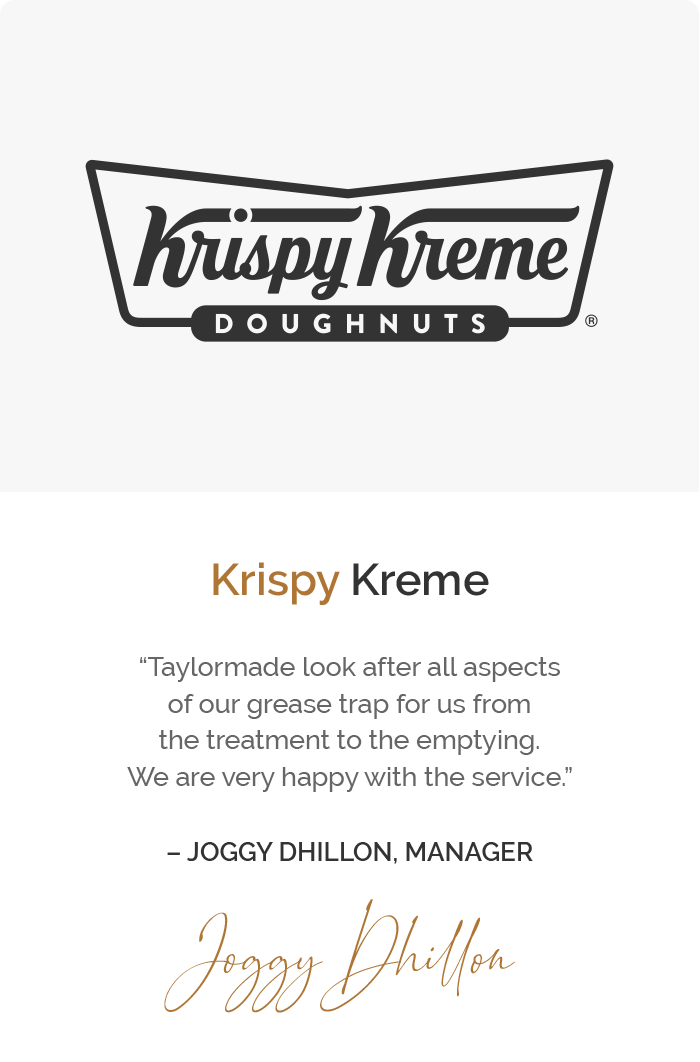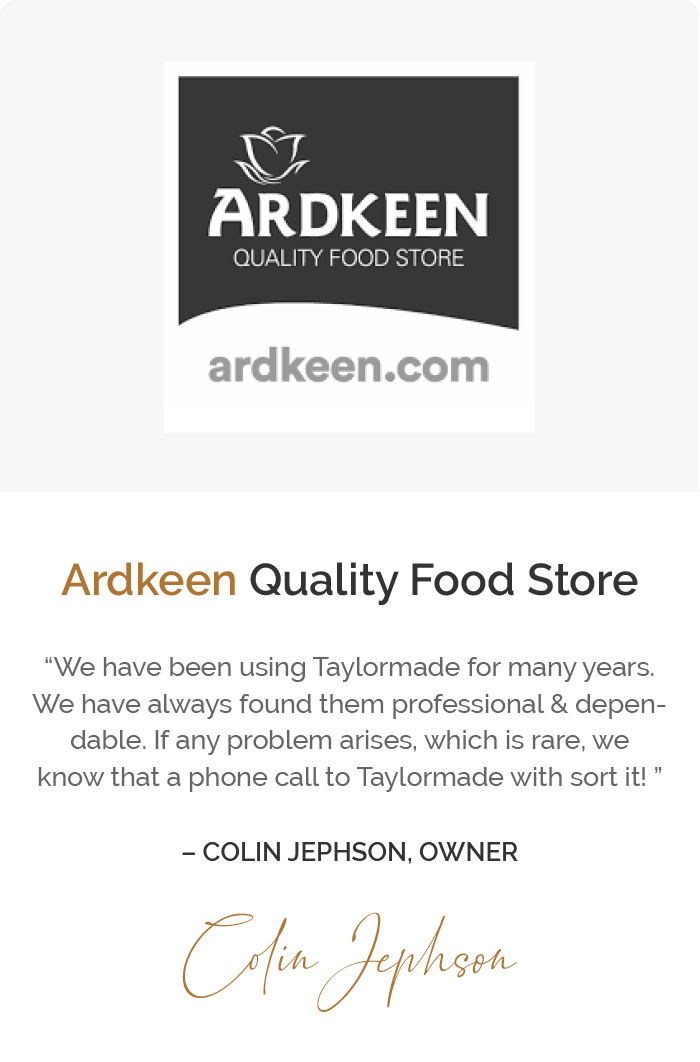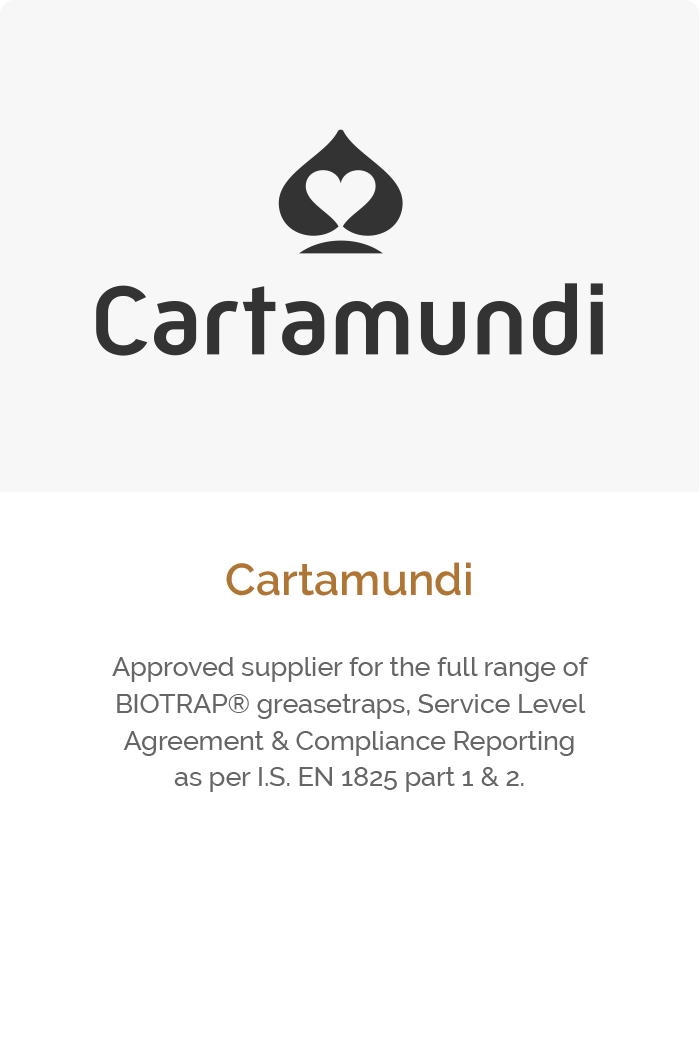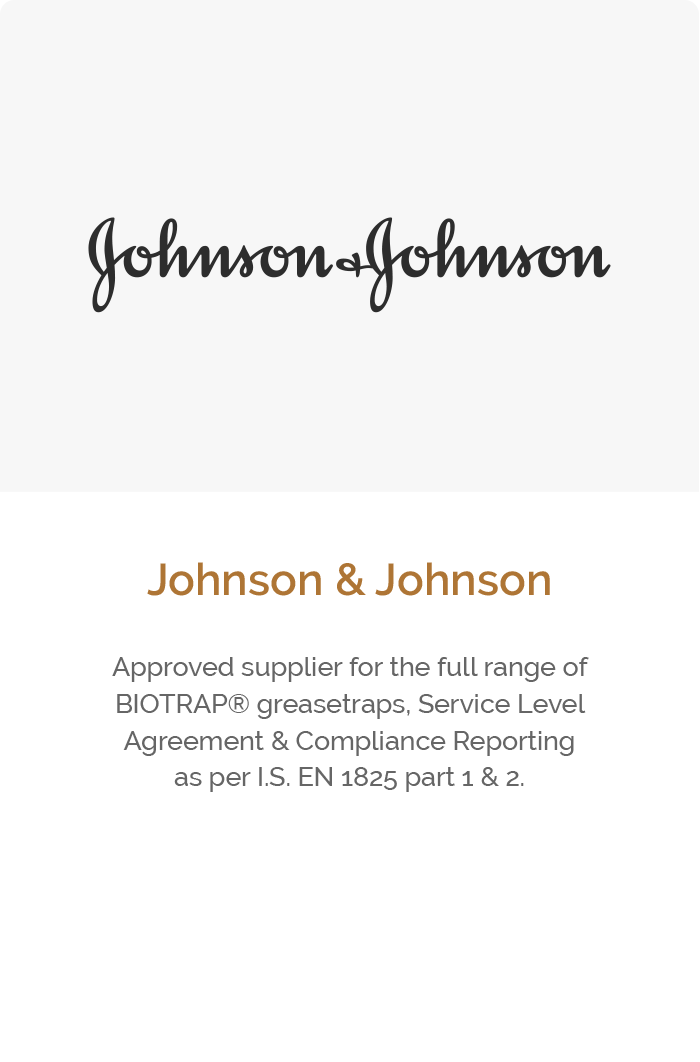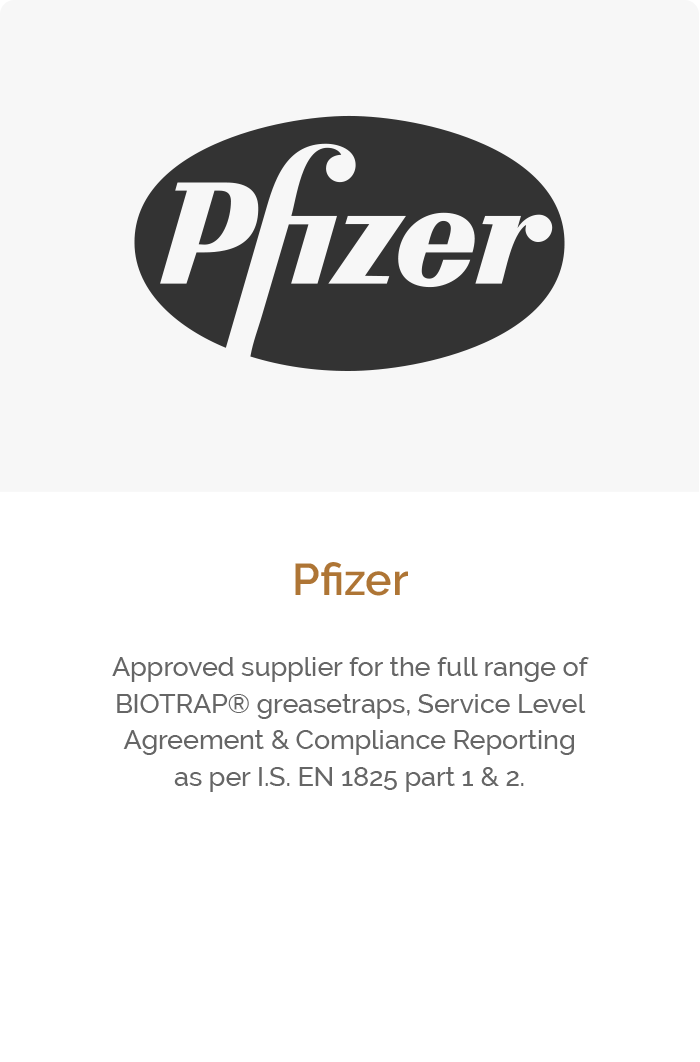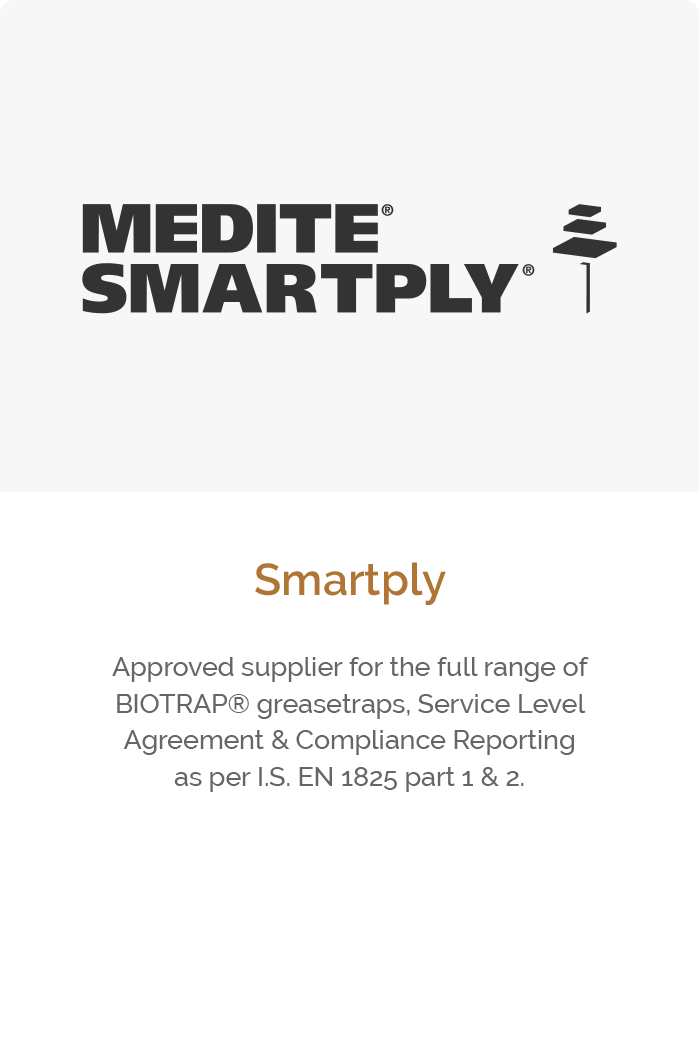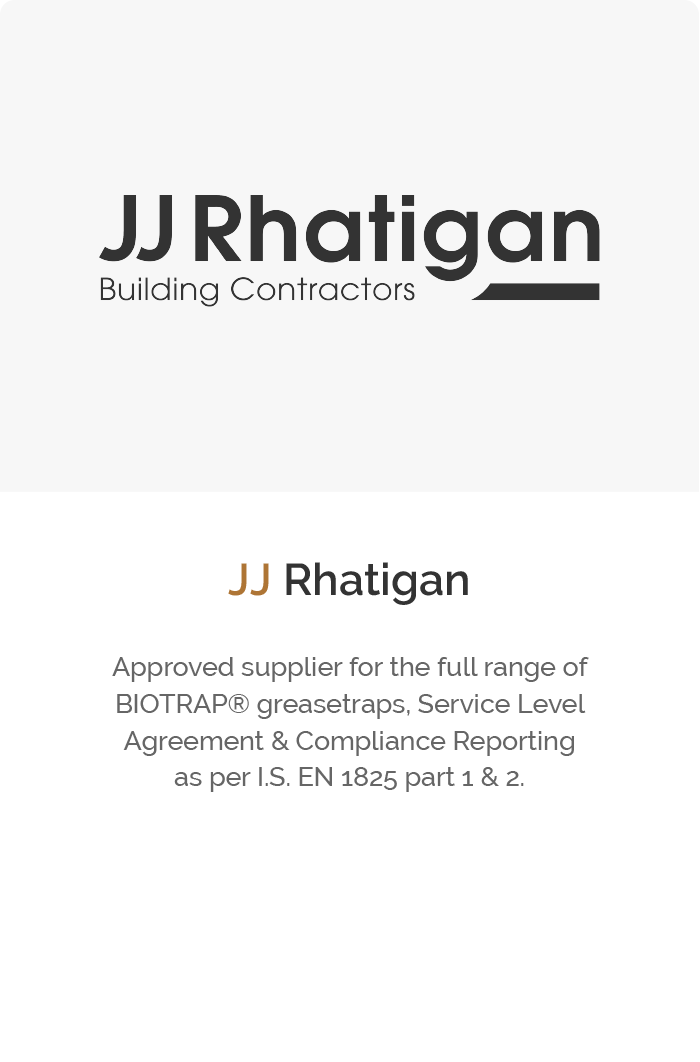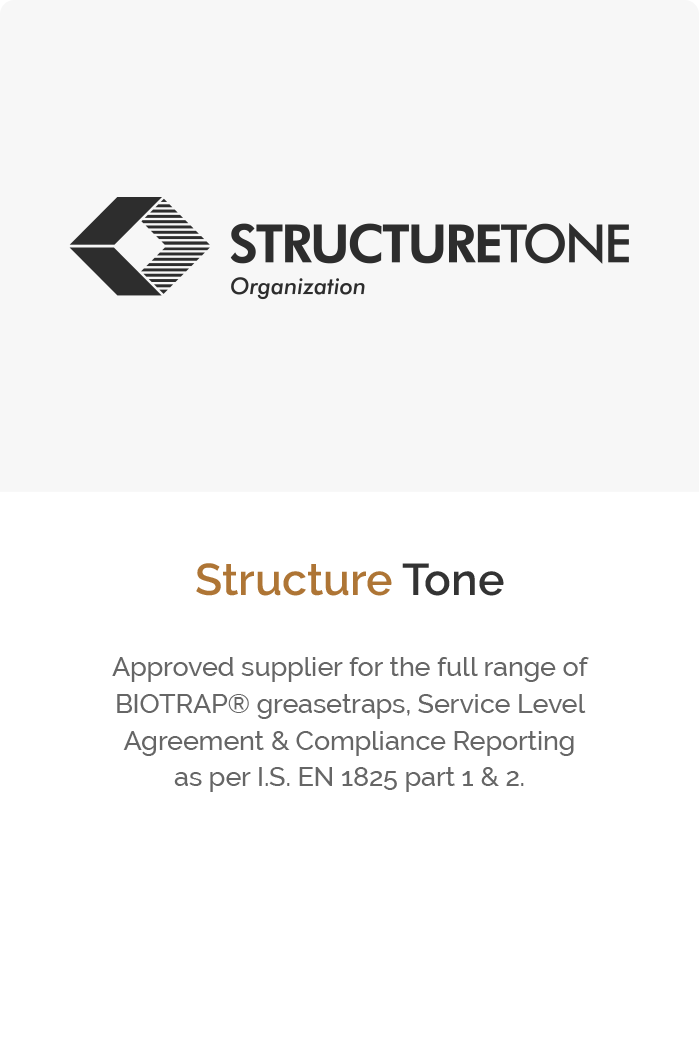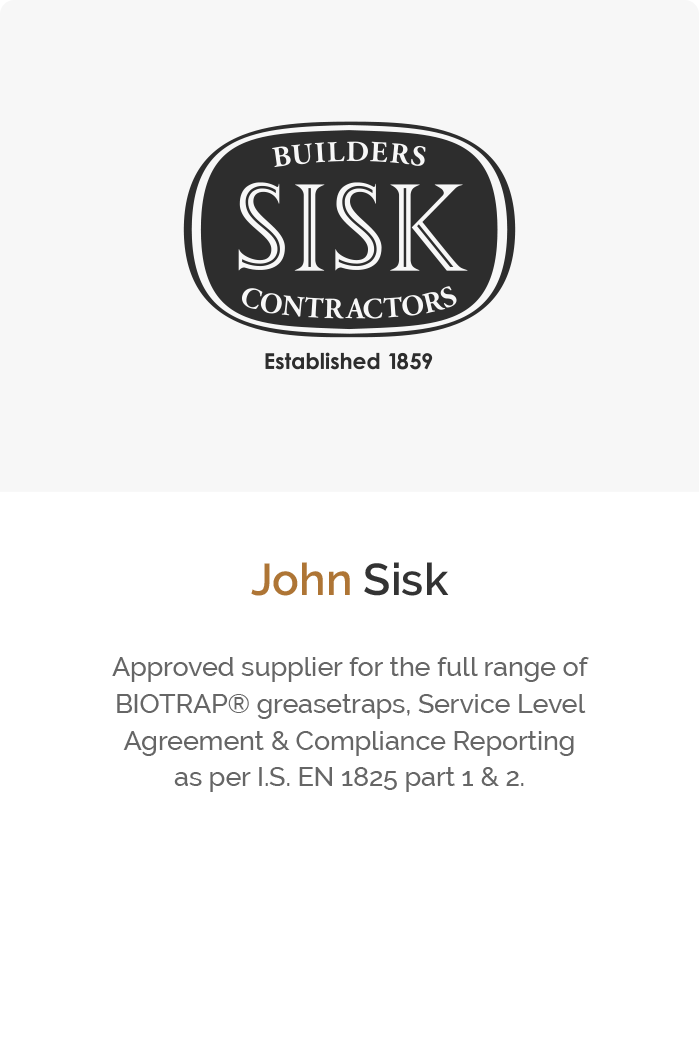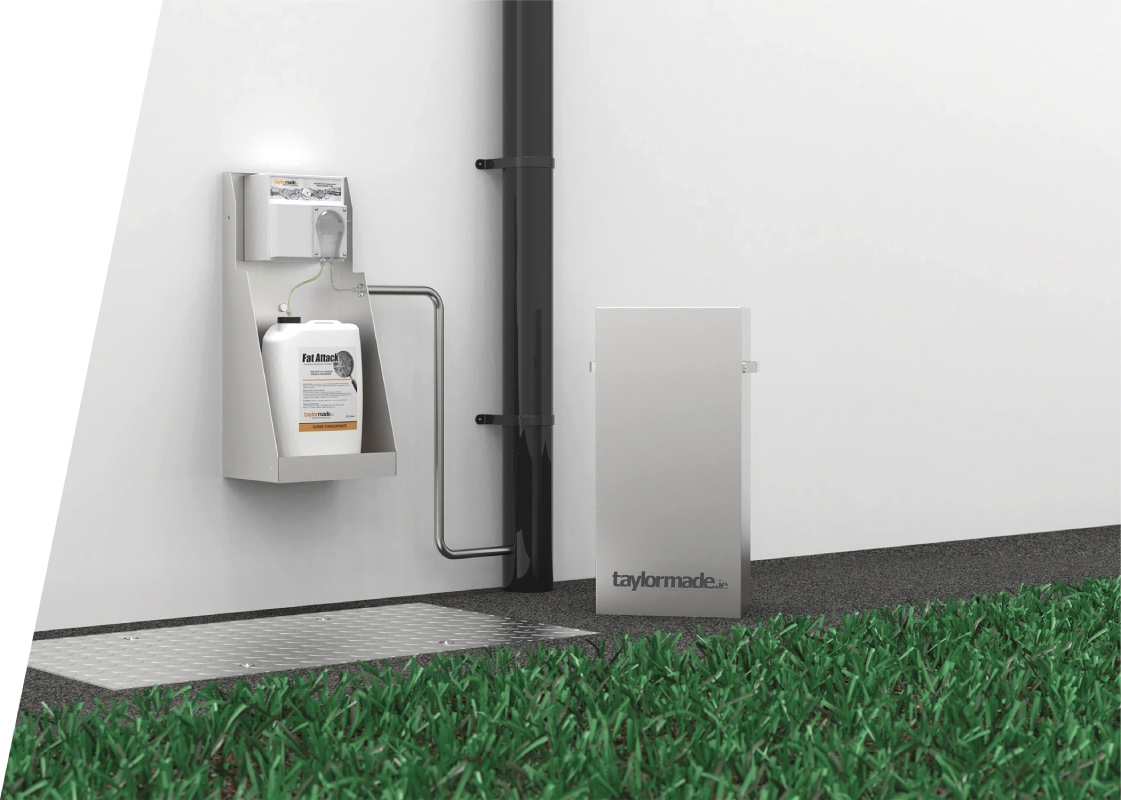Do I Need to Treat my Grease Trap?
Treating your drains and grease trap with a bacterial additive is not a legal requirement. However, extensive independant studies have shown that approved and licenced treatments significantly reduce the buildup of FOG (fats, oils & grease) in pipes, drains and grease traps. This is turn reduces the frequency of expensive cleaning which justifies the cost of treatment.
Can I Treat the Grease Trap Myself?
Yes. Bacterial treatments are safe to handle and environmentally friendly. They can be hand dosed into a sink at regular intervals but they are most effective when allowed to sit in an idle plumbing system for up to 4 hours each day e.g. last thing at night.
Automated dosing via a digital peristaltic pump is recommended as it eliminates human error and ensures consistent, accurate and timed dosing each day.
Do All Drain Treatments Work?
No. The use of enzymatic drain treatments are banned in Ireland. Studies show that these additives temporarily suspend and liquify FOG (fats, oils & grease) which later solidify further down the line to cause blockages.
When choosing a bacterial drain treatment look for a Local Authority or Irish Water approved permit number and always purchase from a well established licensed supplier. A reputable company will often supply and install a free-on-loan dosing pump if you commit to buying their product.
How Does the Bacterial Treatment Work?
Simply put, approved bacterial treatments digest grease and other organic waste to prevent FOG (fats, oils & grease) from blocking plumbing systems and grease traps.
The Technical Bit:
Fats, oils and grease, or triglycerides, have a common molecular structure, consisting of a glycerol headpiece to which three fatty acid chains are attached. In the first hydrolysis stage of breakdown, the enzyme lipase catalyses the removal of the fatty acid chains from the glycerol headpiece. The second stage is beta-oxidation, in effect where the liberated fatty acids are cleaved, 2 carbon units at a time, forming a molecule called acetyl co-enzyme A – water and energy. This process continues until the entire fatty acid molecule has been cleaved into acetyl co-enzyme A molecules.
Finally, it is acetyl co-enzyme A that enters the Krebs cycle (TCA cycle/citric acid cycle) to be oxidised into carbon dioxide and water, with the production of energy.
How Do I Get Rid of Bad Smells?
Bad odours are the result of a poorly maintained or badly designed grease trap. A good quality bacterial treatment will reduce bad odours but there is no substitute for a well-designed grease trap.
- The lid of the unit should be mechanically secured to create a 100% airtight and watertight seal.
- It should only be opened a few times per year for professional emptying.
- It should be properly vented to allow the controlled escape of gases and bad odours.
- A maintenance plan or SLA (Service Level Agreement) is recommended
Bacterial Dosing
The Most Effective Solution
Do I Need to Treat my Greasetrap?
Treating your drains and grease trap with a bacterial additive is not a legal requirement. However, extensive independant studies have shown that approved and licenced treatments significantly reduce the buildup of FOG (fats, oils & grease) in pipes, drains and grease traps. This is turn reduces the frequency of expensive cleaning which justifies the cost of treatment.
The Product Range
Biological Products. Local Authority Approved.
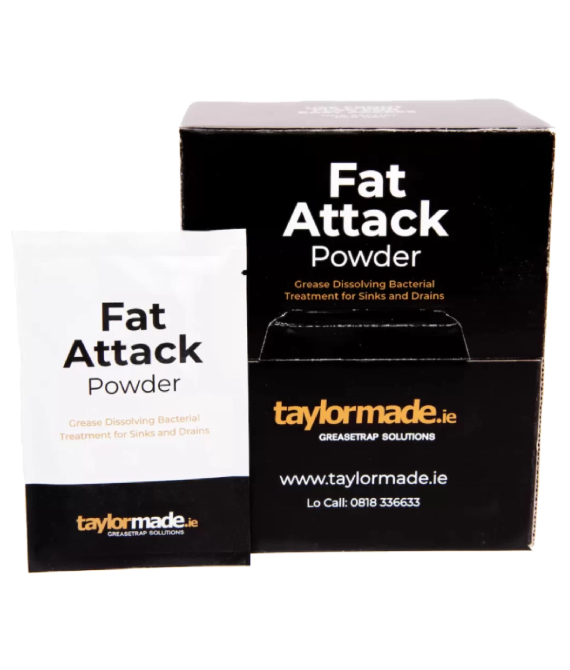
Fat Attack® Powder
Treatment for All Greasetraps
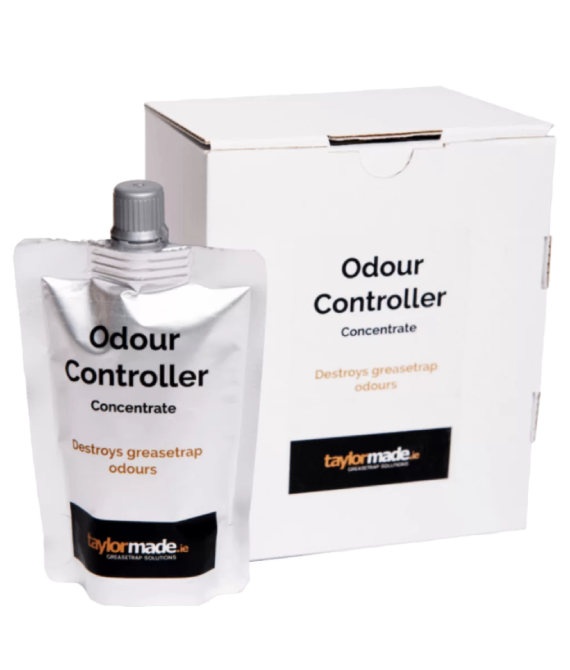
Odour Controller
Treatment for Eliminating Odours
Odour Controller is a unique bacterial treatment with a proven formulation to successfully remove bad odours from all types of commercial greasetraps. Unlike chemical alternatives, there is no odour masking as the bacteria works to break down odours at source.
Benefits
- Included in our Maintenance Plan
-
DCC & Irish Water Approved
-
Environmentally Friendly Formulation
-
Eliminates Bad Odours & Slow Sinks
-
No More Blocked Drains & Traps
-
Reduces costly pump outs & Cleans
-
Complies with Current Licensing Requirements
-
Timed & Consistent Dosing. See Dosing Pumps
Benefits
-
DCC & Irish Water Approved
-
No more blockages caused by fats, oils and grease
-
No more bad odours
-
No contracts
-
Fast and easy to use
-
Reduces the frequency of grease trap pump outs
-
No more harsh chemicals or plumber call outs
-
Environmentally friendly and safe to use
Benefits
-
DCC & Irish Water Approved
-
No more bad odours
-
Cleaner and safer working environment
-
Fast, easy, safe, and environmentally friendly to use
-
No more harsh chemicals
Capacity: Available in 1L & 10L
Capacity: Available in 1L & 10L
Capacity: One box = 30 sachets.
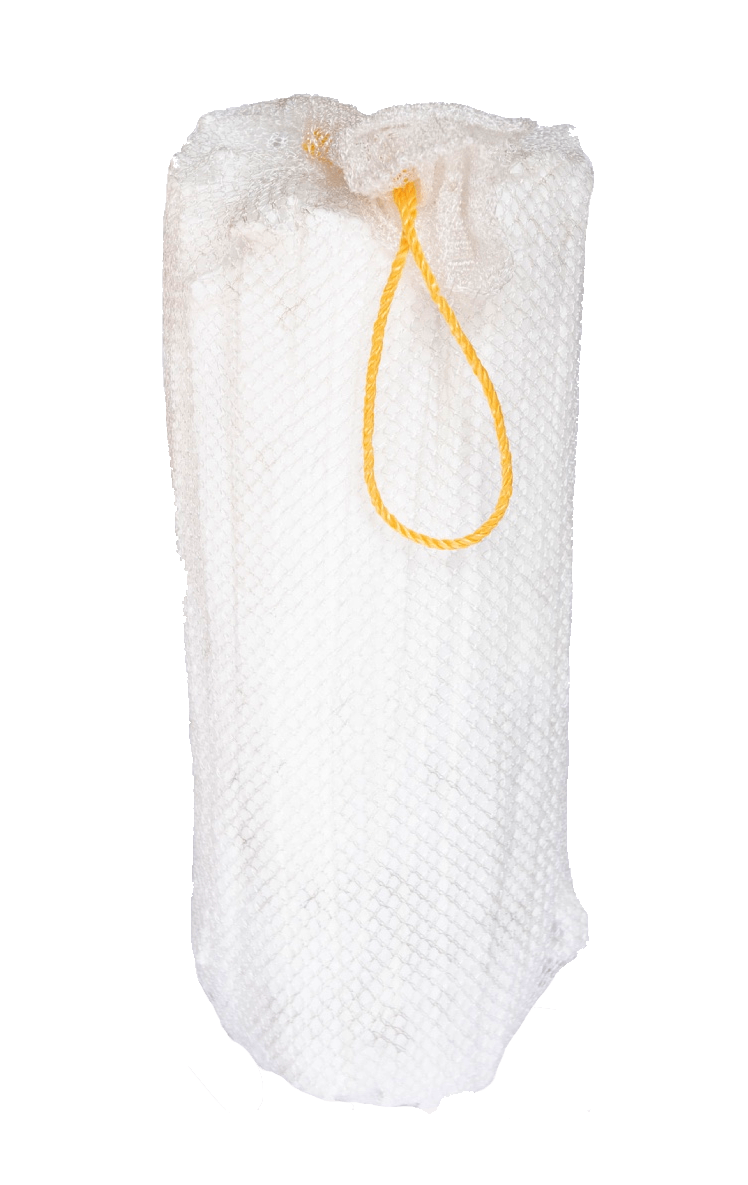
Bio Sock
Treatment for Waste Water Sumps
Bio Sock is designed for easy placement into wastewater sumps. Its slow-release active bacterial formula effectively breaks down fats, oils, and grease (FOG), promoting cleaner, more efficient systems. The super-absorbent material attracts and captures floating grease, reducing buildup. Once saturated, the Bio Sock can be quickly removed and responsibly discarded for hassle-free maintenance.
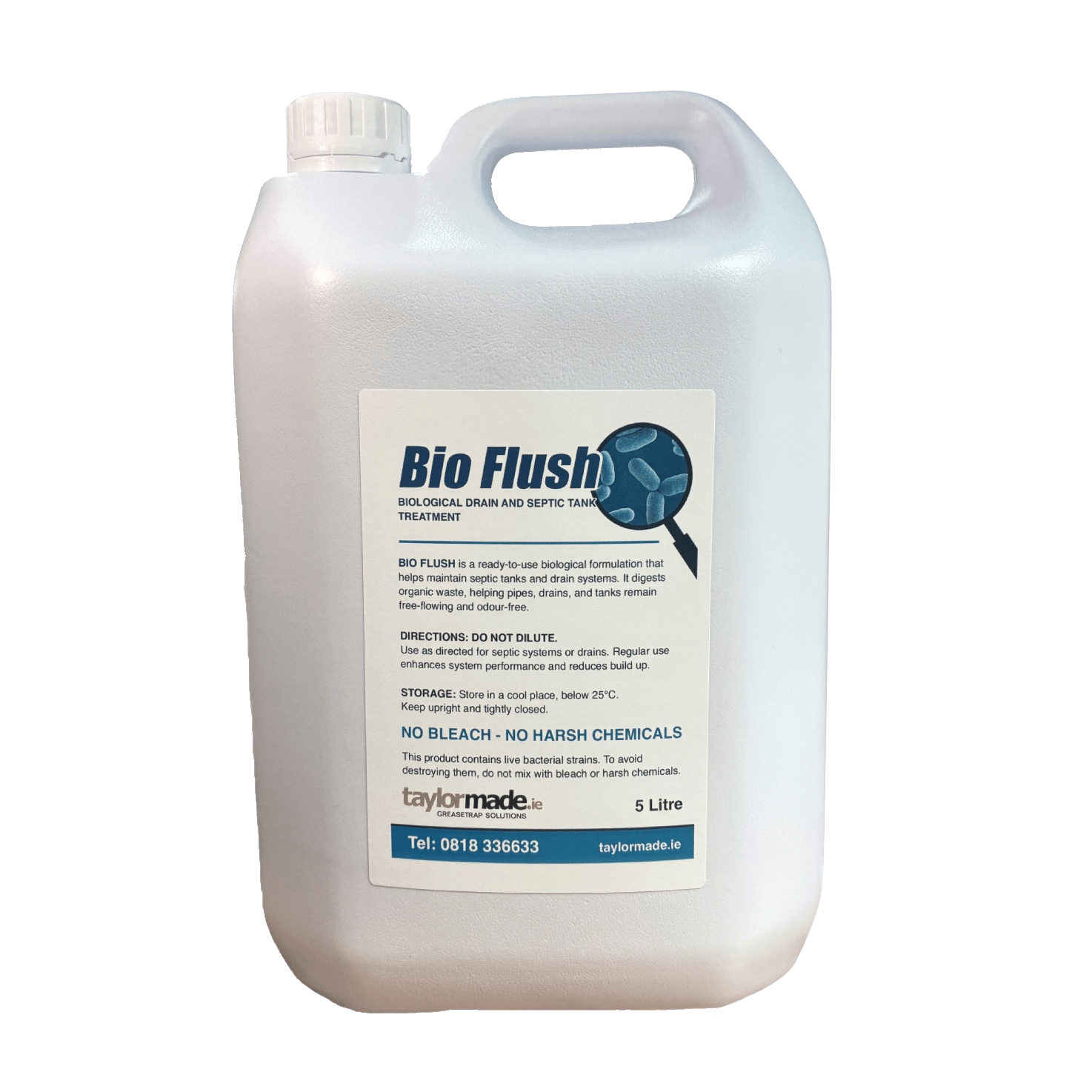
Bio Flush
Treatment for Septic Tanks
Bio Flush is a powerful liquid treatment specially formulated for commercial and industrial septic tanks. Its advanced bacterial formula rapidly breaks down organic waste, improving system performance and reducing costly maintenance. Regular use keeps drains flowing freely and extends the lifespan of your system while remaining safe for the environment and plumbing.
Benefits
-
DCC & Irish Water Approved
-
Environmentally Friendly Formulation
-
Reduces Odours
-
Slow Release Treatment.
-
Reduces Costly Pump Outs & Cleans
-
Reduces Sludge, Fats, Oils & Grease
Benefits
- High bio-culture concentration in semi-solid gel
- Activates on contact with oil and grease
- Digests up to 2 L of oil per week
- Improves oil-water separator discharge by 90%
- Suitable for separators, bunds, and runoffs
- Contains Class 1 biological microorganisms
Benefits
-
Breaks down organic waste
-
Prevents blockages and odours
-
Reduces maintenance and pump-out frequency
-
Improves system efficiency
-
Safe and eco-friendly
-
Easy to apply
Capacity: 5KG
Capacity: 1.1KG
Capacity: 1L & 5L
The Product Range
Biological Products. Local Authority Approved.
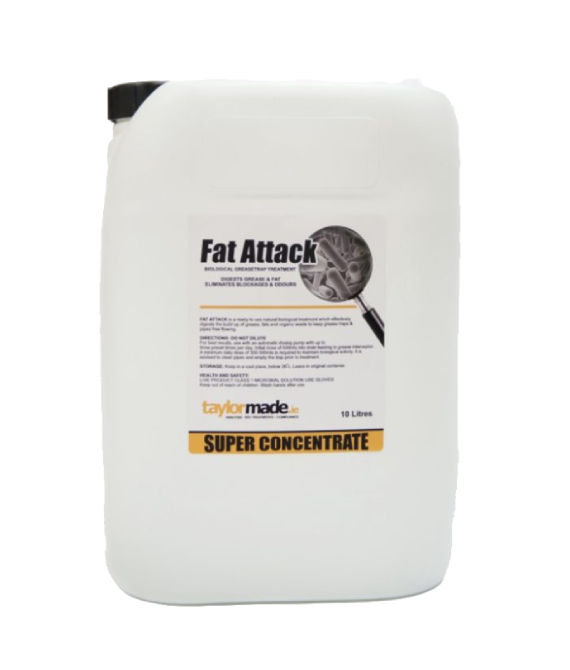
Fat Attack®
Treatment for All Greasetraps
Fat Attack® is a time-proven bacterial additive that is automatically dosed into busy plumbing systems daily. It safely and economically digests grease and other organic waste buildup and turns it into carbon dioxide and water. The micro-organisms in Fat Attack® break down and digest all solid waste on contact which keeps drains, pipes and grease traps functioning as new.
Benefits
- Included in our Maintenance Plan
-
DCC & Irish Water Approved
-
Environmentally Friendly Formulation
-
Eliminates Bad Odours & Slow Sinks
-
No More Blocked Drains & Traps
-
Reduces costly pump outs & Cleans
-
Complies with Current Licensing Requirements
-
Timed & Consistent Dosing. See Dosing Pumps
Capacity: Available in 1L & 10L

Fat Attack® Powder
Treatment for All Greasetraps
Fat Attack® Powder is a daily preventative treatment that keeps busy drains and plumbing systems free flowing. Fat Attack® Powder produces a bio-film on the inside of pipes that digests grease and other organic waste to prevent FOG (fats, oils & grease) from blocking and causing bad odours.
Benefits
-
DCC & Irish Water Approved
-
No more blockages caused by fats, oils and grease
-
No more bad odours
-
No contracts
-
Fast and easy to use
-
Reduces the frequency of grease trap pump outs
-
No more harsh chemicals or plumber call outs
-
Environmentally friendly and safe to use
Capacity: Available in 1L & 10L

Odour Controller
Treatment for Eliminating Odours
Odour Controller is a unique bacterial treatment with a proven formulation to successfully remove bad odours from all types of commercial greasetraps. Unlike chemical alternatives, there is no odour masking as the bacteria works to break down odours at source.
Benefits
-
DCC & Irish Water Approved
-
No more bad odours
-
Cleaner and safer working environment
-
Fast, easy, safe, and environmentally friendly to use
-
No more harsh chemicals
Capacity: One box contains 30 sachets.
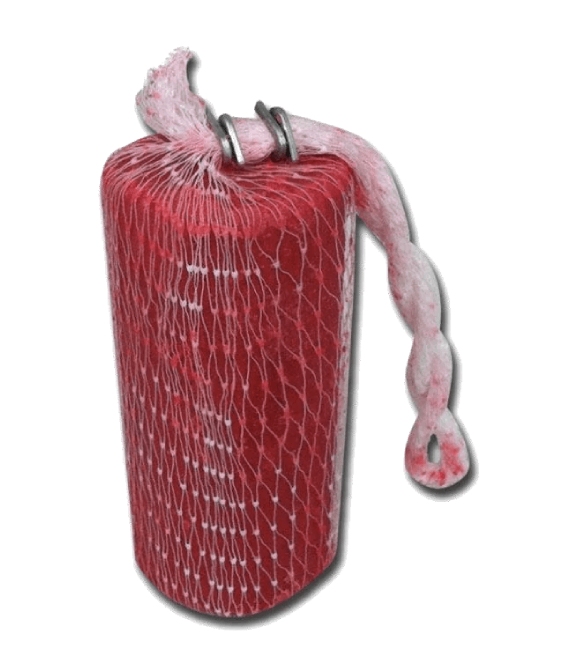
Bio Block
Treatment for Waste Water Sump
BIO BLOCK will gradually dissolve over a 30 to 90 day period and the natural occurring bacteria will reduce odour, sludge, fats, oils and grease. This will significantly reduce maintenance and cleaning thereby prolonging the life of pumps and working parts. Suitable for use in pumping stations, effluent treatment plants, holding tanks, wet wells and lagoons.
-
DCC & Irish Water Approved
-
Environmentally Friendly Formulation
-
Reduces Odours
-
Slow Release Treatment.
-
Reduces Costly Pump Outs & Cleans
-
Reduces Sludge, Fats, Oils & Grease
Capacity: 5KG

Bio Sock
Treatment for Waste Water Sumps
Bio Sock is designed for easy placement into wastewater sumps. Its slow-release active bacterial formula effectively breaks down fats, oils, and grease (FOG), promoting cleaner, more efficient systems. The super-absorbent material attracts and captures floating grease, reducing buildup. Once saturated, the Bio Sock can be quickly removed and responsibly discarded for hassle-free maintenance.
Benefits
- High bio-culture concentration in semi-solid gel
- Activates on contact with oil and grease
- Digests up to 2 L of oil per week
- Improves oil-water separator discharge by 90%
- Suitable for separators, bunds, and runoffs
- Contains Class 1 biological microorganisms
Capacity: 1.1KG

Bio Flush
Treatment for Septic Tanks
Bio Flush is a powerful liquid treatment specially formulated for commercial and industrial septic tanks. Its advanced bacterial formula rapidly breaks down organic waste, improving system performance and reducing costly maintenance. Regular use keeps drains flowing freely and extends the lifespan of your system while remaining safe for the environment and plumbing.
Benefits
-
Breaks down organic waste
-
Prevents blockages and odours
-
Reduces maintenance and pump-out frequency
-
Improves system efficiency
-
Safe and eco-friendly
-
Easy to apply
Capacity: 1L & 5L
Rhino Food Interceptor by Taylormade
Over time, food waste can accumulate in pipes & drains which in turn cause bad odours & costly blockages.
Designed to restrict solid waste from entering pipes, public sewers, grease traps & waste water treatment plants. Works in conjunction with your grease trap.
Rhino Food Interceptor by Taylormade
Over time, food waste can accumulate in pipes & drains which in turn cause bad odours & costly blockages.
Designed to restrict solid waste from entering pipes, public sewers, grease traps & waste water treatment plants. Works in conjunction with your grease trap.
